Ann Voskamp's Blog, page 21
March 14, 2024
How to Navigate Through Distractions to Really Prepare for Holy Week & Resurrection Sunday
Has something taken your focus off of the Cross this Easter season? Master storyteller Charles Martin has written twenty-five books, and in this sacred space leading up to Resurrection Sunday, he invites us to walk Jesus’ path to the Cross, where brokenness meets healing and despair gives way to hope. Let’s kneel on this Herodian road with him and focus our hearts and minds on the inconceivable exchange that transpired upon those ancient stones and the unshakeable truth that indeed, It Is Finished. It’s a joy to welcome Charles to the farm’s table today…
Guest Post by Charles Martin
The last time I was in Jerusalem, we walked down underground to a Herodian road that bordered the west side of the city and led from Caiaphas’s house to Pilate’s praetorium. Almost a direct shot.
In studying the history of Jerusalem and the life of Jesus, there are many things we are not sure of. Some things we have to guess at. But we are pretty sure Jesus walked this road. Especially if they wanted to shame Him.

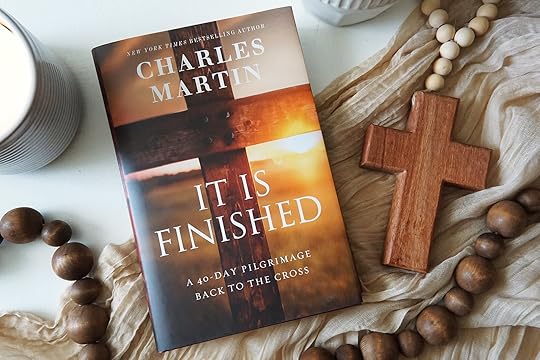


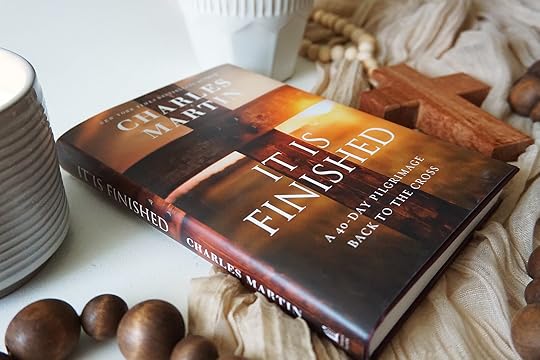

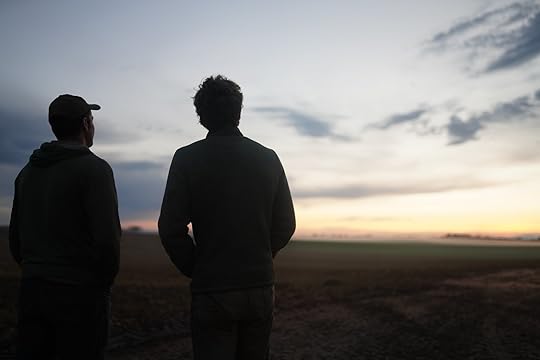
The stones are old, worn, smooth, and shiny. You can almost see your reflection in them.
“Standing on those stones, it struck me. This was real. This really happened. They really gambled. They really beat Him. And He really bled—maybe right here.“
Standing before the praetorium, with my feet on those stones, two things struck me. Over on the ground to my right, I saw something that looked like a tic-tac-toe game carved into the stone. Through much use, the multiple perpendicular lines had formed deep grooves in the stone.
Here on these stones, beneath my feet, is where they would strip the condemned, and because he had no further use for his clothes, they’d gamble for them while someone swung the cat-o’-nine-tails. An executioner’s perk.
To my left, a few feet away, sat a circular hole. Maybe eight inches in diameter. Soldiers would wedge a post into the hole, then lash a prisoner to it. Face to the pole. Then they’d whip him. Mercilessly.
Standing on those stones, it struck me. This was real. This really happened. They really gambled. They really beat Him. And He really bled—maybe right here.
Splattered all around me. I knelt and traced the grooves with my fingers like a letter written in braille. In my ear I heard Isaiah saying, “His appearance was marred more than any man and His form more than the sons of men.” (Isaiah 52:14) The NTL says it this way: “But many were amazed when they saw him. His face was so disfigured he seemed hardly human, and from his appearance, one would scarcely know he was a man.”
I stared at the stones. Listening. Did it happen right here? Did Jesus become unrecognizable as a man on these smooth stones? Shaking my head, I whispered, “What kind of love is this? What kind of King does this?”
In my ear, I heard this echo: The same King who says: “[So] that the love with which you have loved me may be in them, and I in them.” (John 17:26)
Perfect love.
“…I am blood-bought, blood-washed, and blood-redeemed. And I am so unworthy. And I am so grateful... We were bought with a price.“
I spent the next few minutes on my knees, palms to the stone, my tears falling into the grooves, mixing with the dust.
Inches from the stone, it struck me: I am blood-bought, blood-washed, and blood-redeemed. And I am so unworthy. And I am so grateful. And I wept.
For the joy set before Him, and despising the shame, Jesus really did this.
Redeemed mankind.
With His very own blood. The most precious blood of any blood ever, and He shed it. For us. Emptied Himself.
“We were bought with a price.”
And that price cost Him everything and me nothing. Even after all this time, I can’t wrap my head around this. That He stood in my place. Brought me out from beneath the spear. Paid my sin-debt. Returned me to His, and now my own, Father. It’s inconceivable. What kind of love is this? Better yet, what kind of King?
I hope I never get over this. Hope I never get used to the idea that Jesus literally paid it all. Willingly. Because I know me, and I’m not worth the life of the Son of God. And yet, to Him, I am.
An inconceivable exchange.

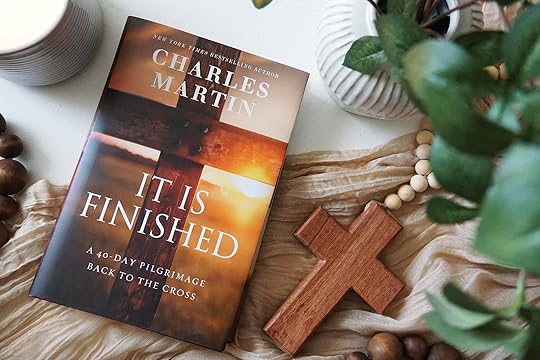


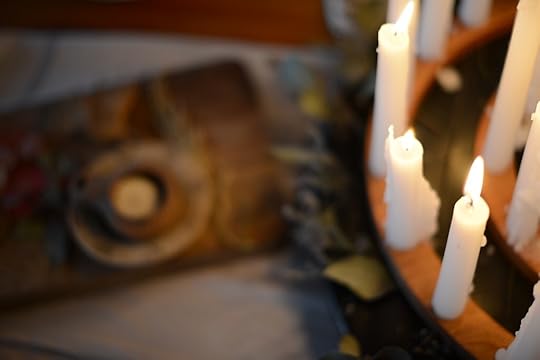
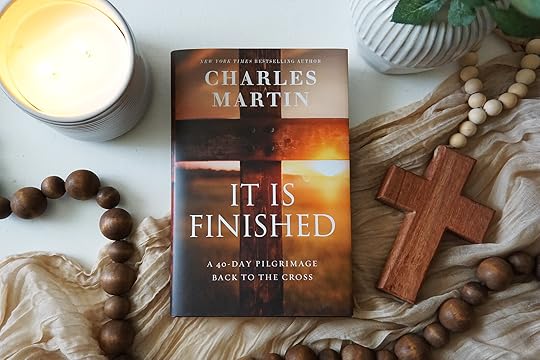
If readers could read only one of my twenty-five-plus books, I’d want them to read this one. Because in truth, it unashamedly points to the only thing on planet Earth that matters.
As I write these words, I am in Jerusalem. Literally staring out across the Mount of Olives and the city where He has placed His name forever. The city of the great King. I love this place. I love these people. I love this mountain of God.
“…This city where He healed. Cast out. Preached. And this city where He, Jesus, who knew no sin, became sin for us so that we might become the righteousness of God.“
This city where Abram raised his hand to God Most High after he met Melchizedek, who brought out bread and wine. This city where David returned the ark, dancing. This city where the prophets wept. Where Jesus the boy stood on the southern steps of the temple and astounded the aged leaders. This city where He healed. Cast out. Preached. And this city where He, Jesus, who knew no sin, became sin for us so that we might become the righteousness of God.
King Jesus, here’s what I hope from this day forward: I want to live like You’re alive. Like You really did walk out of that tomb. Like it really is finished. I want to live in the power of Your resurrection.
I pray that You would help me share Your story with others so that they might come to know You and that same love.
From what You’ve told us, there’s more than enough to go around. So come, Lord Jesus. Rule. Reign. Let Your kingdom come. Your will be done. Be magnified and lifted high. I pray that it is no longer I who live but You who live in and through me.
And let me follow You all the days of my life having come to know You, Jesus Christ crucified, the power of the Cross, and the immeasurable glory and victory of Your resurrection. In the matchless, all-powerful, undefeated, limitless name of Jesus.
Adapted from It Is Finished: A 40-Day Pilgrimage Back to the Cross by Charles Martin
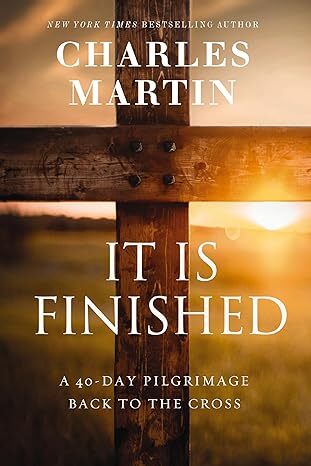
Charles Martin is a New York Times and USA Today bestselling author of 25 books, available in more than 35 languages. He lives in Jacksonville, Florida, with his wife Christy and their three sons.
Charles’ new book, Is Finished: A 40-Day Pilgrimage Back to the Cross offers you a unique and vital roadmap to trace the power and necessity of the cross throughout the Bible, from the book of Genesis all the way to your present-day reality.
On this 40-day pilgrimage your eyes will open wide and your heart will race as you discover the answer to the question that can change your life, Lord, why me? Why would you endure the cross and despise the shame, for me?
{ Our humble thanks to Thomas Nelson for their partnership in today’s devotional.}
March 11, 2024
Do You feel Like You’re Never Enough? Here’s Why You Don’t Need to Be
In a world where we are told we need to be enough for everyone, including ourselves, the weight of being the savior of our stories is too much for us to bear. What if you could lean into the capacity of Christ and practice the beauty of God-dependence instead of self-dependence? We don’t need to empower ourselves in order to face life’s hardships and heartaches. Let Becky Beresford’s words offer freedom and relief as we journey back to the gospel and embrace the God who is more than enough for us all. It’s joy to welcome Becky to the farm’s table today…
Guest Post by Becky Beresford
I couldn’t believe we were here again.
Sitting alone on my bedroom floor, tears soaked my face as I recalled yet another fight with my husband. Only a few minutes earlier I had slammed the door and yelled from the depths of my wounded heart, “I’ll never be enough for you!” In reality, I never felt like I was enough for anyone, let alone my husband.
We were about a decade into our marriage and our relationship was accelerating toward the threshold of separation. As someone who struggled with pleasing people her whole life, feeling like I could not do enough to save our marriage was gut-wrenching.
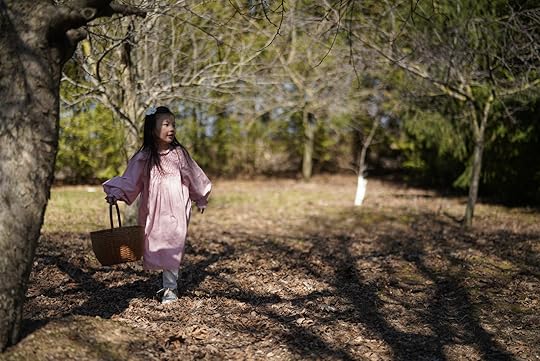


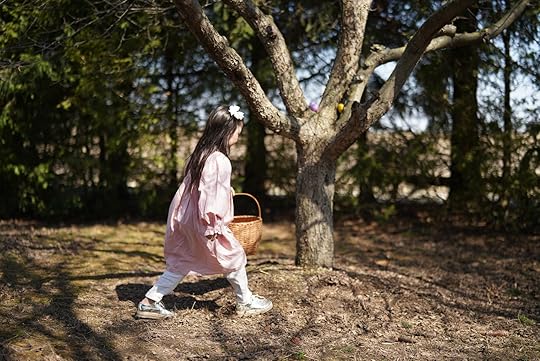
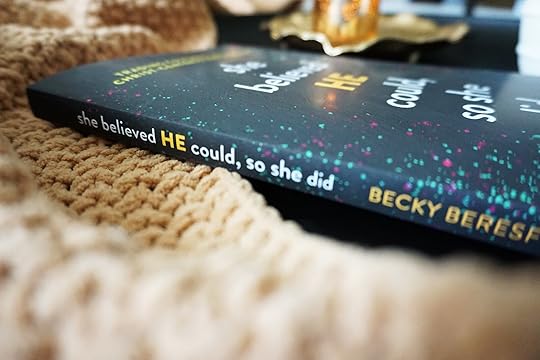
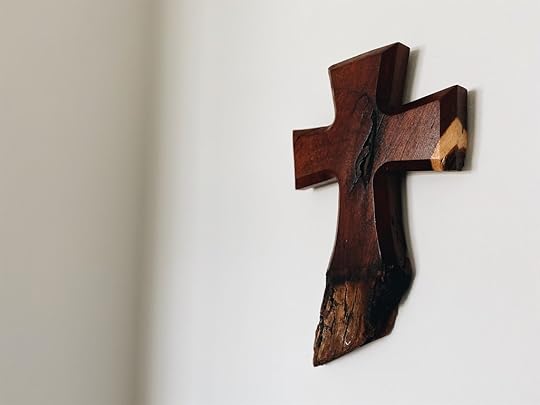
I wanted to fix things.
I wanted to paint myself as a perfect partner and wife. I wanted to forgive and move forward, but bitterness had planted its fatal root and I was ashamed for letting it happen. Blame sank into the deepest part of my soul, leaving me knee-deep in guilt. Day after day, I could barely handle the pain. No matter how hard I tried, I couldn’t get out of this pit to bandage my bleeding wounds.
“Telling our full story (ugly bits and all) ushers in the gift of authenticity, but it also creates needed space where others can see God redeem.“
Until recently, when I would fight with my husband, I’d roam around our bedroom and turn the pictures of us face down on the tables. Yes, I was usually angry. And yes, I’d leave them that way so he could see it. Not my finest hours, but my hurt feelings were often doing the leading.
What I didn’t realize was that every time I hid a photo from his sight and mine, I allowed myself to be swallowed by shame. I couldn’t look at those pictures because I saw how my husband was caring for me, and how could anyone love me when I acted foolishly or said those awful words? How could my flaws be covered when my failure seemed too great?
We all have ugly parts of our lives we don’t want others to see or know. Well, now you know one of mine. . . and I’m glad. A little squeamish, but glad. And here’s why. Telling our full story (ugly bits and all) ushers in the gift of authenticity, but it also creates needed space where others can see God redeem.
And redeem He will.
When darkness hovers thickly and threatens to stifle the light, we need to remember two important things:
(1) Nobody is too far gone from the redemptive hand of God.
(2) We have an enemy who fights against all that is good.
The word gospel comes from the Anglo-Saxon term god-spell, meaning “good story.” It’s a translation of the Latin word evangelium and the Greek word euangelion, meaning “good news” or “good telling.” At its core, the gospel is the ultimate story of God’s redemption, taking all that the enemy meant for evil and turning it around for good. But what does this mean for us when we feel weak, weary, or powerless?
“The gospel is good not because of what we have or haven’t done—rather, the gospel is good because the Maker of heaven and earth has done everything for us.“
It means everything.
We worship a God who chose us from before the foundation of the world, knowing who we were, what we would do, and where we would go. And yet, the love He has for His children outweighs the heaviest of costs, even the death of His Son on a cross. The gospel is good not because of what we have or haven’t done—rather, the gospel is good because the Maker of heaven and earth has done everything for us.
This good story points toward our desperate need for God and highlights His extravagant act of deliverance. It shows how we cannot depend on ourselves, we cannot save ourselves, we cannot dig our way out of the muck and the mire. We are in too deep. And so, our Father “reached down from heaven and rescued [us]; he drew [us] out of deep waters” (Ps. 18:16). When we are drowning or wish the raging waves would still, God becomes our rescue. He is both our salvation and our continual lifesaver.
Power is present as we share our honest stories—when we let others know we are not enough, and we never want to be—not when there is One who is more than enough for all. With every declaration of God’s ability to redeem our struggles, we offer up our lives as a glorious retelling of the good news.
We get to show others how absence in our life ushers in His abundance. How our failings give God the opportunity to fill.
How our lessening on earth means we experience the kingdom’s gain.
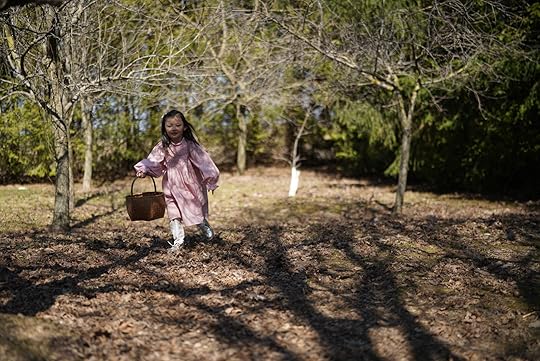
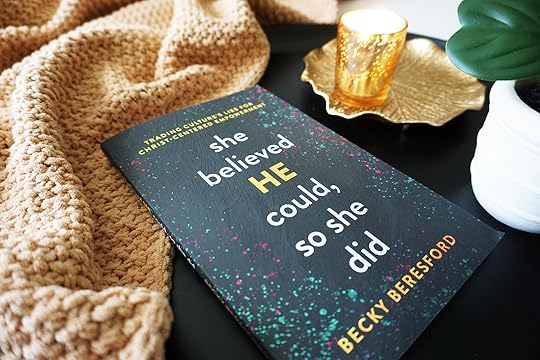
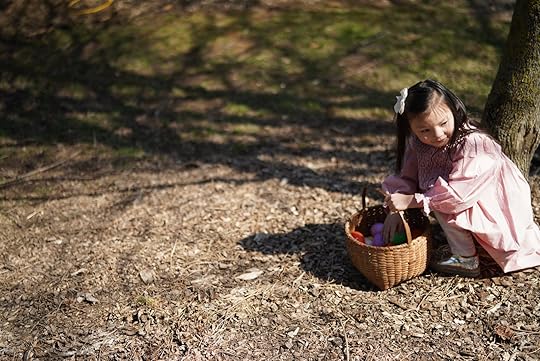

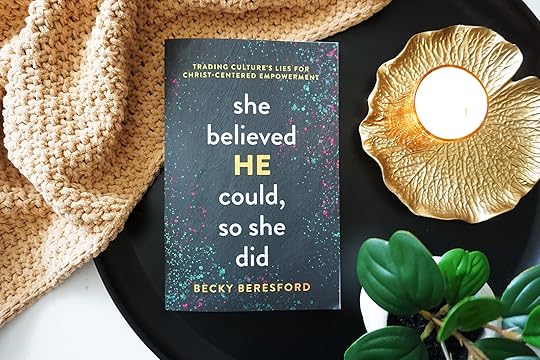
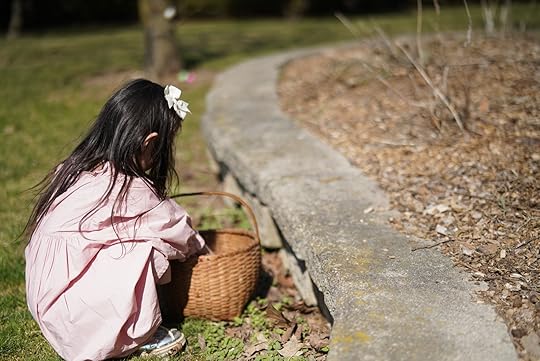
“Leaning into Christ’s capacity not only frees us from having to carrying what we were never made to carry, it makes us more than enough in Him.“
Today when I say I’m not enough on my own, I feel a sense of release.
I’ve been liberated from the pressure to please or the drive to earn my worth. I can’t be enough for my husband because that is Christ’s role alone to fill. My husband can’t be enough for me because only Christ can be my all.
Jesus is the single source of sufficiency and security that can satisfy the empty parts of every human soul. There are no exceptions, no matter what others may tell us.
Only the cross can wash away our sins, and only in our weaknesses can we be made new and whole—not by our efforts or hard-won grit but by the gracious love of the Father who promises to make us complete in the fullness of Himself.
We are not the savior of our stories. It was never our role to play. Because of Jesus, we have an Advocate, Redeemer and Friend who proves Himself faithful in the bleakest and brightest moments. Leaning into Christ’s capacity not only frees us from having to carrying what we were never made to carry, it makes us more than enough in Him.
This gospel provides the rest our weary hearts need.
*Adapted from an excerpt in She Believed HE Could, So She Did
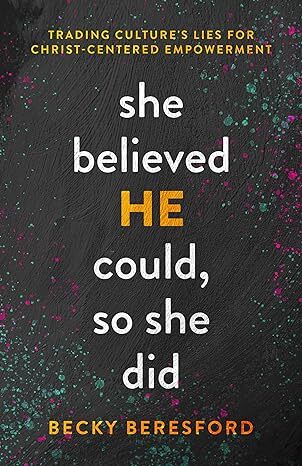
BECKY BERESFORD lives in North Carolina and is happily outnumbered by her husband and three wonderful boys. She is an author, speaker and coach with a Master’s Certificate in Spiritual Formation and Discipleship from Moody Theological Seminary. Becky loves encouraging God’s Daughters to embrace Christ-centered empowerment through the truth found in the gospel. Her work has been featured in large online communities including Crosswalk, (in)courage, iBelieve, HuffPost, DaySpring, and more. She recently became a writer for Proverbs 31 Ministries’ First 5 writing team. Becky’s book with Moody Publishers, She Believed HE Could, So She Did, releases in March. Connect with Becky at BeckyBeresford.com or follow her on Instagram and Facebook.
She Believed HE Could, So She Did is a message of freedom for women as they learn to embrace Christ-centered empowerment by shifting away from society’s definition of self-empowerment. Becky devotes chapters to the most common messages promoted by our culture and gives readers dependable biblical truths grounded in the gospel. We were never made to be the savior of our stories. God is the Rescuer and Redeemer our souls need, as we rely on His capacity, character, and care.
{Our humble thanks to Moody for their partnership in today’s devotional.}
March 9, 2024
Only the Good Stuff: Multivitamins & Supplements For the Soul & Your Week Ahead [03.09.2024]
Happy, happy, happy weekend!
Serving up only the Good Stuff for you right here:
 Levi Voskamp – Photographer
Levi Voskamp – Photographer Levi Voskamp – Photographer
Levi Voskamp – Photographer
For behold, the winter is past;
the rain is over and gone.
The flowers appear on the earth,
the time of singing has come,
and the voice of the turtledove
is heard in our land.
Every moment the patches of green grew bigger and the patches of snow grew smaller.
Every moment more and more of the trees shook off their robes of snow.
Soon, wherever you looked, instead of white shapes you saw the dark green of firs or the black prickly branches of bare oaks and beeches and elms. Then the mist turned from white to gold and presently cleared away altogether. Shafts of delicious sunlight struck down on to the forest floor and overhead you could see a blue sky between the tree tops.
Soon there were more wonderful things happening. Coming suddenly round a corner into a glade of silver birch trees Edmund saw the ground covered in all directions with little yellow flowers – celandines. The noise of water grew louder. Presently they actually crossed a stream. Beyond it they found snowdrops growing.
“Mind your own business!” said the dwarf when he saw that Edmund had turned his head to look at them; and he gave the rope a vicious jerk. But of course this didn’t prevent Edmund from seeing. Only five minutes later he noticed a dozen crocuses growing round the foot of an old tree – gold and purple and white. Then came a sound even more delicious than the sound of the water.
Close beside the path they were following a bird suddenly chirped from the branch of a tree. It was answered by the chuckle of another bird a little further off. And then, as if that had been a signal, there was chattering and chirruping in every direction, and then a moment of full song, and within five minutes the whole wood was ringing with birds’ music, and wherever Edmund’s eyes turned he saw birds alighting on branches, or sailing overhead or chasing one another or having their little quarrels or tidying up their feathers with their beaks.
“Faster! Faster!” said the Witch.
There was no trace of the fog now. The sky became bluer and bluer, and now there were white clouds hurrying across it from time to time. In the wide glades there were primroses. A light breeze sprang up which scattered drops of moisture from the swaying branches and carried cool, delicious scents against the faces of the travellers. The trees began to come fully alive. The larches and birches were covered with green, the laburnums with gold. Soon the beech trees had put forth their delicate, transparent leaves. As the travellers walked under them the light also became green. A bee buzzed across their path.
“This is no thaw,” said the dwarf, suddenly stopping. “This is Spring.”
– C.S. Lewis, The Lion, The Witch and the Wardrobe, Chapter 11
Round up of What’s Happening around the FarmView this post on InstagramA post shared by Melba Pearson Voskamp (@melbapvoskamp)
In which Melba celebrates spring…
(and shares a sneak peak of what she and Aurora are working on)
View this post on InstagramA post shared by The Keeping Company (@the_keeping_company)
And Caleb and Melba use the Cradle to Cross wreath in anticipation of Easter…
View this post on InstagramA post shared by Aurora McGee (@auroramcgeeart)
And Aurora does some spring cleaning; parting with paintings from years past…
Check in next week to Keep following AlongLord of the Dance: (Un)Surprisingly Scientific Scriptural Prescriptions for a Joyful HeartStop me if you’ve heard this one before.
A man is diagnosed with an incurable disease that attacks his joint and bones. The doctors offer little hope of any treatment.
The man, deciding to not give up on himself, checks himself into a hotel to watch comedy films in an effort to take as high a dose as possible of “laughter being the best medicine.”
And it works!
And it’s a true story — that man was Norman Cousins, the editor of The New York Post.
The story is, of course, a little bit more nuanced, as most stories are, than the version just told. Norman Cousins attributed a large part of his recovery to a very high dose of vitamin C and the will to live, in addition to his regimen of laughter. He also more than readily acknowledged it could have been one of the biggest possible cases of a self-willed placebo effect known to man, but so be it – the results speak for themselves. He had recovered from the unrecoverable.
You can read his thoughts on his recovery here in the New England Journal of Medicine.
But, we as Christians shouldn’t be overly surprised by this.
A joyful heart is good medicine,
but a crushed spirit dries up the bones.
Proverbs 17:22
This proverb was from Solomon, the wisest man who ever lived.
Most of us are probably fairly aware of the benefit of laughter and a joyful heart being good medicine — but one thing we might not be aware of is of the possibility of the joyful heart being so inextricably tied up with singing and dancing.
Now this idea might not be immediately at hand in our minds as the modern Christian (or, with tongue in cheek, the self-styled frozen chosen)…
(speaking of frozen chosen)…but both David the Psalmist and his son Solomon speak of dance as synonymously intertwined with joy.
You have turned for me my mourning into dancing;
you have loosed my sackcloth
and clothed me with gladness,
that my glory may sing your praise and not be silent.
O Lord my God, I will give thanks to you forever!
Psalm 30:11-12
a time to weep, and a time to laugh;
a time to mourn, and a time to dance;
Ecclesiastes 3:4
Sing to the Lord a new song,
his praise in the assembly of the godly!
Let Israel be glad in his Maker;
let the children of Zion rejoice in their King!
Let them praise his name with dancing,
making melody to him with tambourine and lyre!
For the Lord takes pleasure in his people;
he adorns the humble with salvation.
Let the godly exult in glory;
let them sing for joy on their beds.
Psalm 149:1-5
So why aren’t doctors writing out prescriptions for dance classes, or ordering regimens of making the hills alive with music?
Well, it’s a possibility. In a meta-analysis study released last month that compared various possible treatments for depression, dancing had the strongest positive outcome on lowering depression.
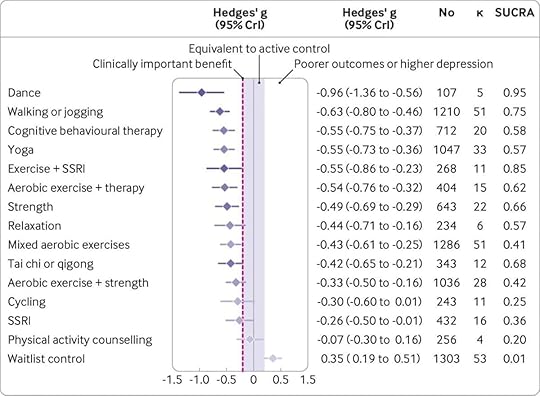 Cause to dance?
Cause to dance?In a scriptural context, this is not a surprise at all.
Now — there are some caveats with this statement, as a number of the studies in the meta-analysis and should not be taken as being beyond question. The results are meant to point towards future avenues for better studies of the most promising treatments, and hopefully they do stronger studies that further prove out previous result. That being said, the study was relatively conclusive in the very strong benefit of physical movement in lowering depression.
Asterisks, provisos, and qualifications aside, the study is merely a happy little encouragement to the scriptural invitation be full of the joy of the Lord, and to grab a loved one and cut a little footloose.
So in that spirit, do that. Grab a loved one. Dance with them. Wear some silly grins, and do a foxtrot, a polka, or whatever brings some joy!
(or if feeling vegetabley adventurous, you could try the cucumber dance)
Christ cares deeply for the birds of the air, and He cares even so much more for us, and for our enjoyment of the world He has made for us.
And speaking of birds, and to end on a joyful note…
– written by Caleb Voskamp
View this post on InstagramA post shared by Puppy Loving's (@puppy.lovings)
You can certainly teach this dog a new trick!
Just In Time For Easter!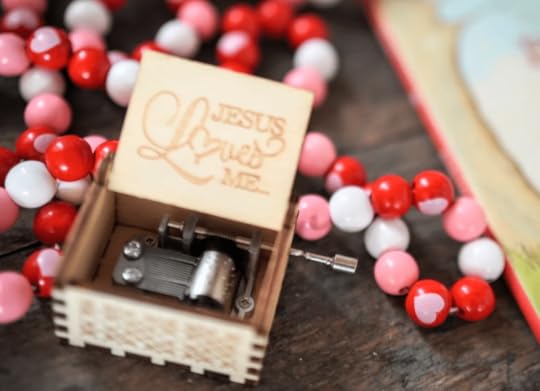
Looking for a great Easter basket idea?
This exquisite, hand-crafted wooden “Jesus Loves Me” music box and our recent children’s book, Your Brave Song, create a perfect Easter gift together!
The hand-crafted wooden music box features intricate laser engraving, as well as timeless old-world charm and plays the first verse of “Jesus Loves Me” and reminds us–young & old–of God’s love and care for us.
Get yours here–on this *phenomenal* deal!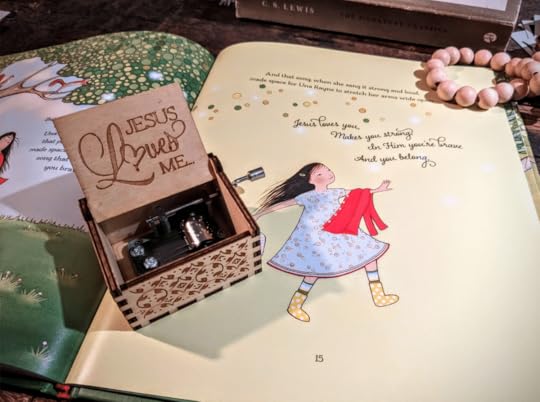
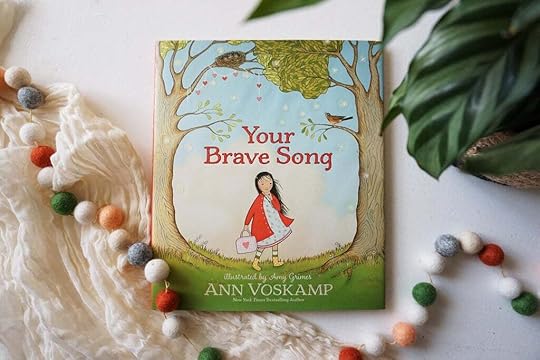 Get your own “Your Brave Song” in time for Easter! The reminder we all need…
Get your own “Your Brave Song” in time for Easter! The reminder we all need…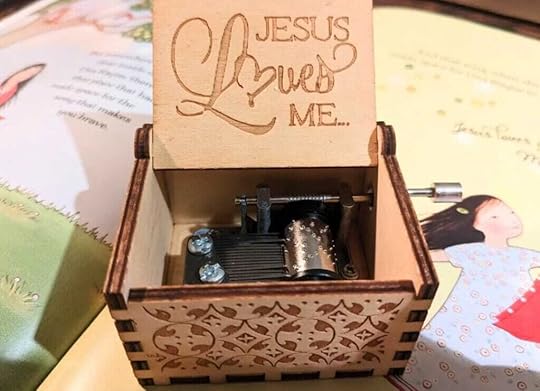
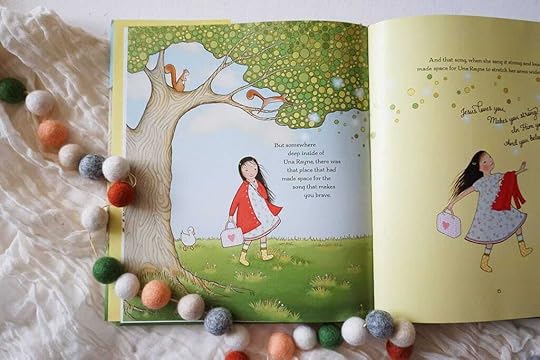 CLICK HERE: Whole Collection of Heirloom Pieces to Help you Keep Company with Jesus this Lent
On The Book Stack at The Farm
CLICK HERE: Whole Collection of Heirloom Pieces to Help you Keep Company with Jesus this Lent
On The Book Stack at The Farm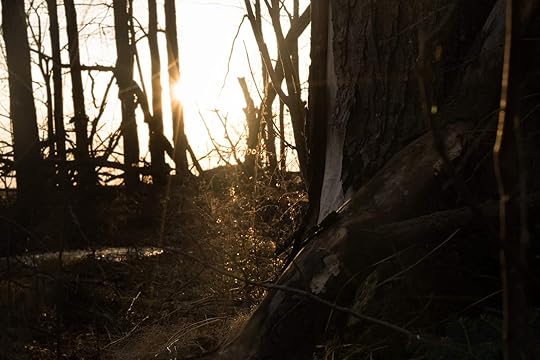
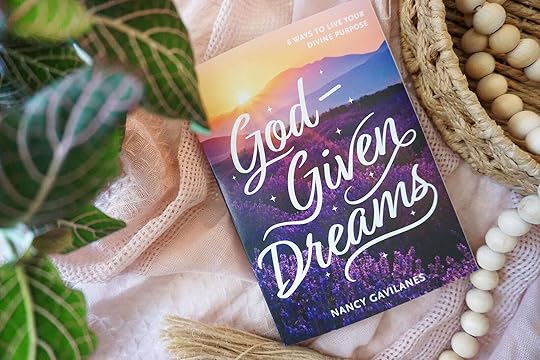
Read by Nancy Gavilanes‘ recent guest post:
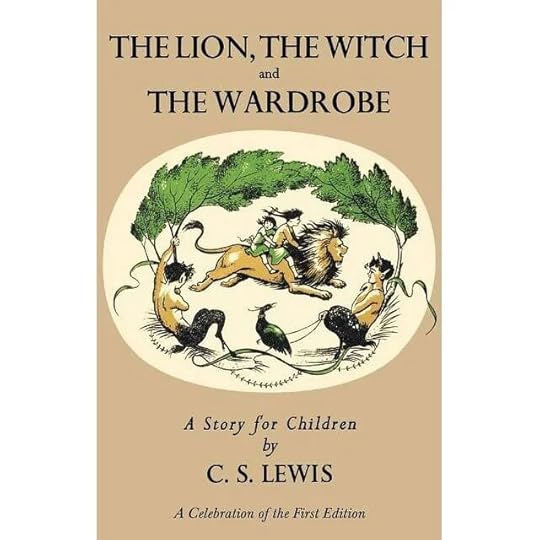
The Lion, the Witch and the Wardrobe
(Because it’s a classic for a reason)
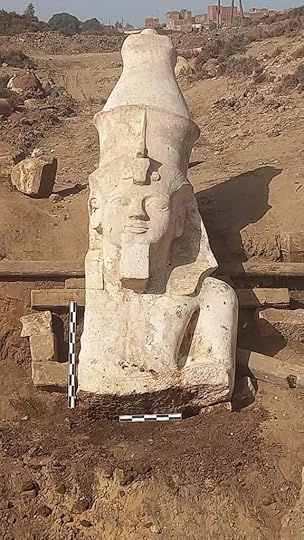
You have to wonder how you can lose something like that!?
The Missing Half of a Colossal Ramses II Statue Has Been Found
Oh God’s world is just so magnificent!
How fetuses reacted to their mothers eating kale vs carrots. Apparently they can smell and taste in utero. pic.twitter.com/o1AjKvA3hR
— polly(@pollypanino) March 8, 2024
Fearfully and wonderfully made!
And already with opinions on kale vs carrots, just wow!
An old one…
But such a good one!
Let’s celebrate spring!!!
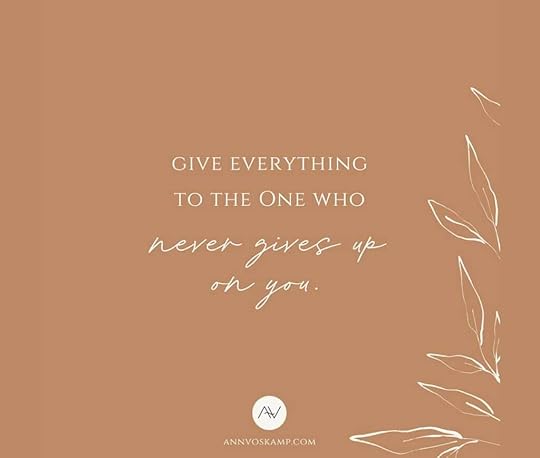
[from our Facebook community – join us?]
You may want to give up on your mountain,
but God has not given up on you
*and He moves mountains.*
Give everything to the One who never gives up on you.
That’s all for this weekend, friends.
Go slow. Be God-struck. Grant grace. Live Truth.
Give Thanks. Love well. Re – joy, re- joy, ‘re- joys’ again
Share Whatever Is Good.
March 8, 2024
No Matter What, I’m Happy You’re Here
Not many people are willing to truly make eye contact with the pain of other people. It’s uncomfortable, it’s messy, and it pushes against the edges of our faith frameworks. Kristen LaValley believes that we should bear witness to each other’s pain without judgment or panic. Healing happens together. We bear powerful witness to the compassion of Christ when we sit next to the hurting and say, “I’m happy to be with you, no matter what is happening around and inside you.”
Guest Post by Kristen LaValley
Do you know what happens in your brain when you make eye contact with someone who’s happy to see you?
Let’s do a little exercise.
“I don’t have to put on a show or hide any part of me. They’re just happy I’m there.“
Picture yourself walking into a room. When you look at who’s there, you see every person who has ever made you feel safe and happy. As you walk in, they look up and notice you. How do they respond? Do they smile? Do they get up and walk toward you? Do they give you a hug? What do they say?
I picture myself walking into my grandmother’s living room.
When I walk in, Nana wipes her hands on her apron (because she was in the kitchen making a peach cobbler for me). She smiles, gives me a hug, and welcomes me in. It’s always a quick hug, though. Nana doesn’t linger—she has things to do. I follow her into the kitchen, where my cousins and siblings are sitting at the table.
They jump up and yell, “Yay! You’re here!” and take turns hugging me. They tell me something ridiculous someone said before I got there. We laugh, grab forks, and dig in.
When I think of people who are glad to be with me no matter what I’m going through, I think of them. These are my low-pressure relationships. I don’t have to put on a show or hide any part of me. They’re just happy I’m there.
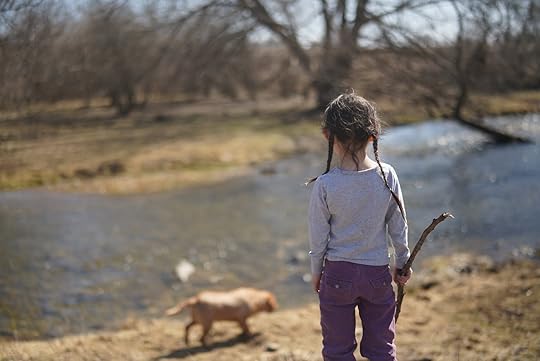

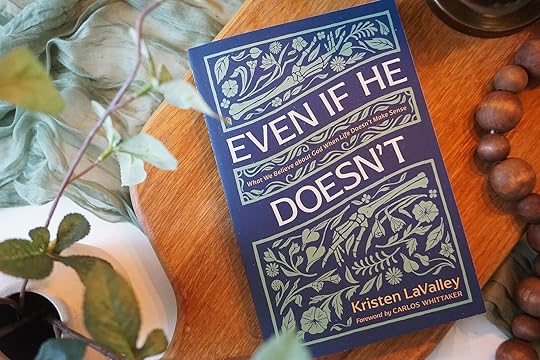


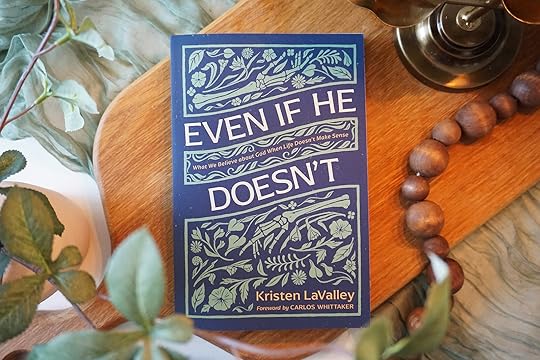
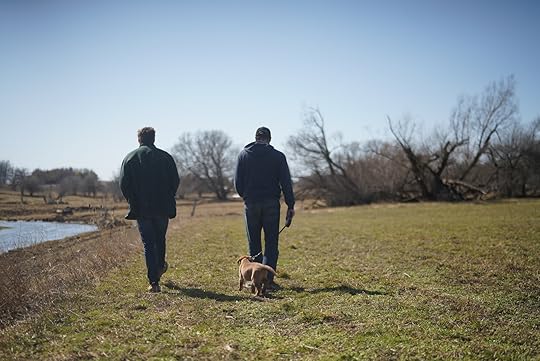
The people who are happy to be with us don’t wait until they see what’s in the bags we’re dragging behind us.
“You don’t have to understand someone’s pain to make room for it… You can be glad that they’re with you and let them know that they’re safe as they are, baggage and all. “
They immediately jump up to greet us and welcome us into their space. They smile and let us in.
Joy lights up the relational circuits of your brain that make connection and trust possible.
When you’re safe, you can face the dark with courage, knowing that you aren’t alone and that you don’t have to hurry through it. After looking each demon in the face, you can come up for air, trusting that these people are happy to see you no matter how haggard you are when you surface.
You don’t have to understand someone’s pain to make room for it. You don’t have to know what someone else is carrying to decide whether their emotional state is justified. You can be glad that they’re with you and let them know that they’re safe as they are, baggage and all.
Heartbreak leaves you wondering if you’re broken, if you’ve been forgotten, if God has abandoned and rejected you. You start avoiding the sharp elbows of well-meaning brothers and sisters in Christ and start looking for a soft, grace-filled place to land and rest. Not so you can run from truth or entertain the heresy you’ve been itching to try out, but so you can breathe.
When pain derails your life, you no longer find peace in the hard edges of certainty. Instead, you find comfort in the presence of the God who is with us. In those moments, you give up trying to make your pain fit neatly inside a particular framework. You just want to know that you aren’t alone.
“There is transformational, healing power in knowing that you aren’t the only one who has held the pain you’re holding. “
There is transformational, healing power in knowing that you aren’t the only one who has held the pain you’re holding.
There’s hope in seeing someone who has ached the way you’ve ached—and survived.
There’s comfort in lament, in songs written in minor keys, and in the darker shades of paint.
You are drawn to those things not because you want to feed your sadness but because they mirror where you find yourself. When you see a painting that visualizes an emotion you have, when you hear a song that puts words to something you haven’t been able to explain, or when you read words that make you feel understood, you are able to see yourself and your pain a little more clearly.

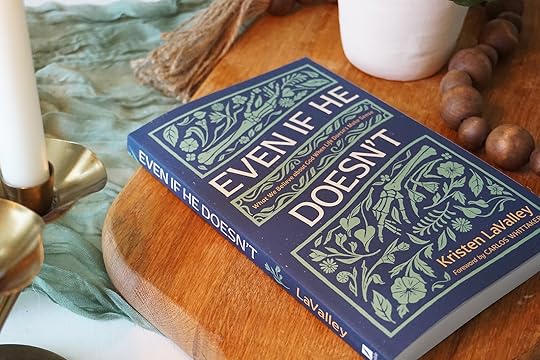


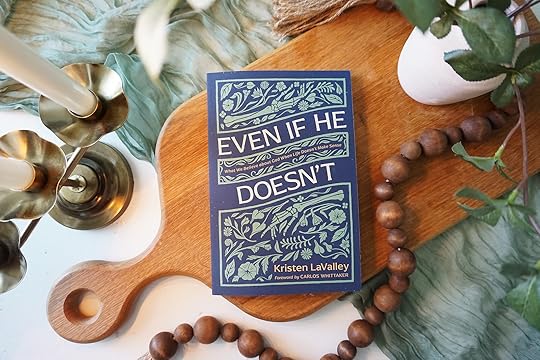
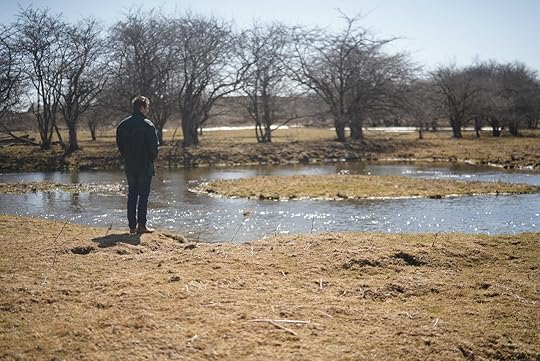
“We are created in the image of God, so when we see ourselves, we see the image of God reflected back to us.“
We are created in the image of God, so when we see ourselves, we see the image of God reflected back to us.
When we perceive this reflection as broken or wasted, it makes us uncomfortable. Pain doesn’t feel like anything holy. But maybe it’s easier to see the sacredness of it when we realize we’re in good company.
The pain we’ve experienced has been felt by all the heroes of the faith across the ages. It’s a pain that’s familiar to God himself. He knows heartbreak, agony, disappointment, anger, and grief.
Lament is a sacred part of our faith—one we can welcome and embrace. There’s no virtue in rushing ourselves—or others—past it. Lamenting what we’ve lost isn’t a sad, unfortunate human response to suffering; it’s a beautiful, healing one.
“Lamenting what we’ve lost isn’t a sad, unfortunate human response to suffering; it’s a beautiful, healing one.“
When we see someone suffering, we can focus on sin. We can focus on blame. We can focus on mess. Or we can observe the heart of Christ for those who are suffering and bear witness to their pain, even if it costs us something.
If we allow ourselves and others to engage with every crack made by pain, we have the opportunity to see and know God in ways we haven’t before.
When we stop trying to rush people past lament and urging them to “move on,” whatever that means, we allow them to experience the faith building that can happen when we’re hurting. When we don’t rush someone’s pain and instead experience it with them, we are communicating the gospel message that we love them—not out of obligation but because we are glad to be together, no matter what.
Grab a fork and dig in to the cobbler.
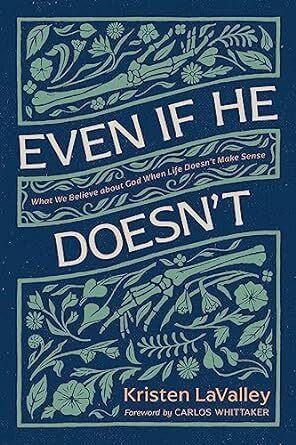
How can I approach God if I’m struggling to believe in His goodness?
So much of our belief can be formulaic. We often think that if we do A, B, and C, then God will do X, Y, and Z.
We check things off the “Good Christian Checklist,” trusting we’ll be okay, and our trials will be minimal. But when our experiences inevitably deviate from that belief, our trust in God often crumbles.
After a series of life-altering trials–including a devastating diagnosis–uncovering faith in the cracks of pain is something Kristen LaValley knows well. In her new book, Even If He Doesn’t, Kristen unpacks the nuances of suffering and faith, holding space for the tension between the two. Those in the midst of heartache will find strength and renewal as Kristen approaches the complexity of suffering with compassion, guiding us to endure while not forsaking the joy, hope, and peace of those marked by Jesus.
Kristen LaValley is a writer and storyteller whose words offer a refreshing perspective on faith and spirituality and resonate with those who carry tension in their faith. She offers insights that intersect doubt and belief, hope and suffering, beauty and heartache. With a deep love for the Christian faith and a willingness to explore its complexities, Kristen’s writing offers nuanced conversations that challenge readers to think deeply and wrestle with important questions. Kristen lives in Massachusetts with her husband, Zach, and their five children.
[Our humble thanks to Tyndale Momentum for their partnership in today’s devotional.]
March 5, 2024
Created with Extravagant Love
Have you ever had a dream that you thought was unattainable? That hasn’t stopped this woman. My guest today, Nancy Gavilanes, doubted herself and maybe even God a bit, and she still chose to believe in her God-given dreams to become the woman he had created. It’s a grace to share this beautiful inspiration and wisdom about developing your spiritual gifts today. It’s a joy to welcome Nancy to the farm’s table today…
Guest Post by Nancy Gavilanes
This is for you to write things down,” my mom said as she handed my older sister and me our new diaries.
I was eight years old, and I was enthralled by the pretty notebook with pink pages and hearts all over the cover.
I didn’t know what I’d write in this special book, but I couldn’t wait to get started.
Private and introverted me welcomed having a space where I could jot down whatever random thoughts or experiences I was having. I thought everyone wrote about their daily lives.
I continued to journal my thoughts in notebook after notebook. Writing became second nature to me.

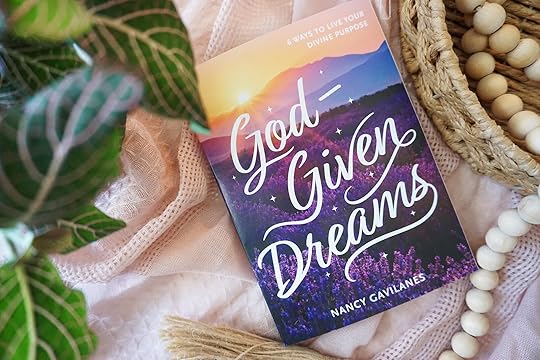
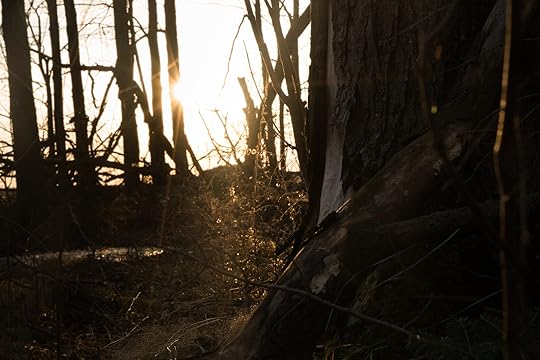



My parents made sure I had scores of books to read and plenty of paper and pens on hand. They encouraged me to hone my writing skills, and they delighted in celebrating even my earliest published articles in high school, college, and local newspapers.
My dear late dad, who was from Ecuador, and my precious mom, who is from Central America, both ran successful small businesses in New York. They modeled and instilled in my sister and me the value of working hard to achieve your goals.
“I had reached my goals and had gotten myself as far as I could, but I still wasn’t satisfied.“
As a native New Yorker, I grew up surrounded by vibrant Hispanic culture as well as a beautiful mosaic of other cultures. But as diverse as my city was, I wasn’t usually surrounded by many other Latina or Latino writers.
I’m glad that didn’t stop me from putting pen to paper.
When the time came to choose a college major, journalism seemed like the best fit.
I was the only Latina student in my journalism classes. I’m glad my professors treated me fairly. I did feel like the odd one out during our required internship, though, when journalism majors moved to another city for six months to write for a local paper. I was the only Latina in our small group.
After graduation, I worked at a prestigious newspaper as a news clerk and then started writing articles and book reviews for them. At my dad’s urging, I went to graduate school and got a master’s degree in journalism from New York University. I then worked at a women’s magazine in Times Square. All my journalism dreams were coming true.
Unfortunately, as my writing career soared, my walk with God suffered. I thought I had outgrown God, and I tried to put Him on a shelf.
I was making my plans and asking God to bless them.
Big mistake.
“I started to realize that God had created me with great love. Almighty God has a plan for my life. And God has a plan for your life too.“
One of my biggest career aspirations was to attend the Olympics as a reporter. I was ecstatic when I received the opportunity to travel to the Summer Games in Sydney, Australia, as a reporter and a spectator!
I had a lovely time there, but something wasn’t right. I had reached my goals and had gotten myself as far as I could, but I still wasn’t satisfied.
During my last full day there, I was by myself in Olympic Park, crying and still feeling empty.
I started to think about all that God had allowed me to accomplish in such a short time, even though I had been rebelling against Him. I felt overwhelmed by God’s amazing love and grace and mercy. I knew I didn’t deserve any of these blessings.
Right there in Olympic Park, I surrendered my life to God and dedicated myself to serving Him.
I started to realize that God had created me with great love. Almighty God has a plan for my life. And God has a plan for your life too.





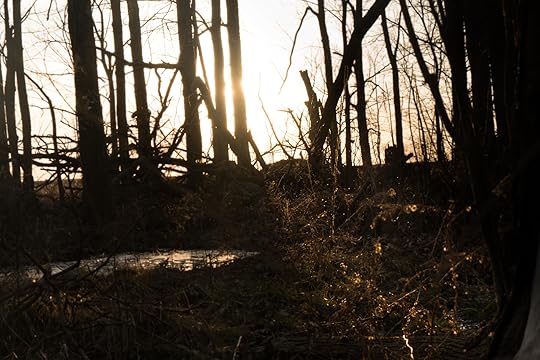
If you’ve ever felt invisible, inadequate, or insecure, you’re not alone. Many people struggle to feel valuable and significant.
Many times, this stems from having a strained relationship with a parent or from having toxic people around us, especially during childhood. It could be compounded by harsh words or abusive actions from a spouse, a boss, or others.
“Almighty God, the Creator of heaven and earth—the One who made the sun, moon, and stars and created the splendid array of gorgeous flowers, spectacular sunrises and sunsets, and the breathtaking sea—delighted in creating each one of us.“
Society, peers, and circumstances may also make us think we’re not enough or we don’t have what it takes. We need to shatter those lies. Thoughts that you’ll never amount to anything, or you’re no good, or God could never love you are lies from the pit of hell.
The enemy wants to fool us into thinking we’re unloved, unworthy, or unwanted. He wants to steal, kill, and destroy our lives and rob us of our identity.
But the enemy is a liar and defeated!
God created us with extravagant love.
Almighty God, the Creator of heaven and earth—the One who made the sun, moon, and stars and created the splendid array of gorgeous flowers, spectacular sunrises and sunsets, and the breathtaking sea—delighted in creating each one of us.
In one of the very first verses in the Bible, we read: “God created mankind in his own image, in the image of God he created them; male and female he created them” (Genesis 1:27, NIV).
Even King David marveled at knowing we’re God’s creation. In Psalm 8 he wrote:
When I consider your heavens,
the work of your fingers,
the moon and the stars,
which you have set in place,
“God didn’t make any mistakes when He created you. God designed you as He saw fit.“
what is mankind that you are mindful of them,
human beings that you care for them?
Psalm 8:3-4, NIV
The next time you see an exquisite sunset, sea, or flower, remember how lovely you are in God’s sight! You were created to worship Him. You were created to bring Him glory.
God didn’t make any mistakes when He created you.
He knew exactly where and when you would be born. He knew the shape of your nose and eyes, the color of your skin, your height, and even the funny way you would laugh. God designed you as He saw fit.

Former journalist and author Nancy Gavilanes was called by God to leave her promising career to encourage others to step into their God-given destiny and make a difference in the world. In her book, God-Given Dreams: 6 Ways to Live Your Divine Purpose, she speaks directly to the heart, offering hope and encouragement through six transformative truths—that believers are Created, Called, Chosen, Conformed, Clothed, and Commissioned.
{Our humble thanks to NavPress for their partnership in today’s devotional.}
March 4, 2024
A Lent to Reflect, Part 2: What I Wish I’d Done Differently As a Mom & How to Work Toward Restoration As a Family
It’s during the second week of Lent that I walk through the messy renovations two of our sons are in the midst of. As they show me how they burning the candle early and late to brave the work of restoring these old, abandoned homes on neighboring farms, it’s the faces of our sons that hold me rapt. I was once their first home — them literally dwelling within – and now most of our children have homes of their own.
It’s not that each of us aren’t going to get things wrong — it’s what each of us do with it afterward.
I want to go back.
I want to go back to when I would stroke their flushed cheeks at the end of the day, till they fell asleep here under our roof; I want to go back to when they’d tumble out of their mess of sheets and tangled quilts with wild bedheads every morning, and come padding barefoot in their worn pajamas into the kitchen, and I’d scoop them up and they’d nestle their drowsy warmth into my neck, and I’d rock them and we’d be at home in each other’s arms.

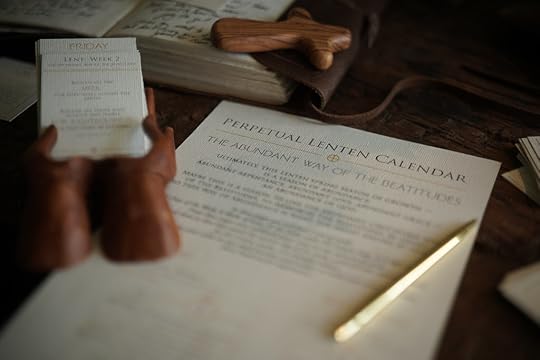
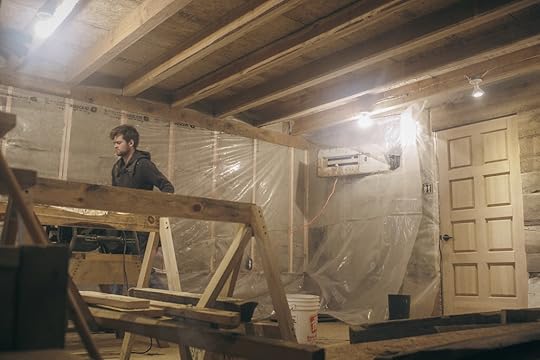

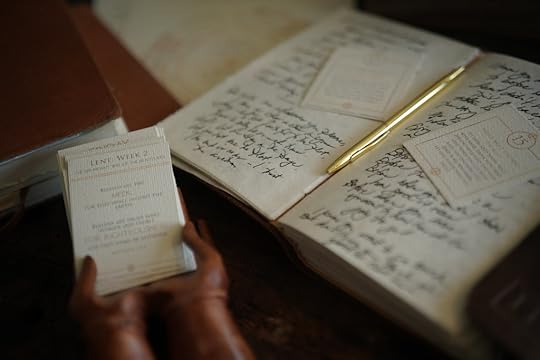
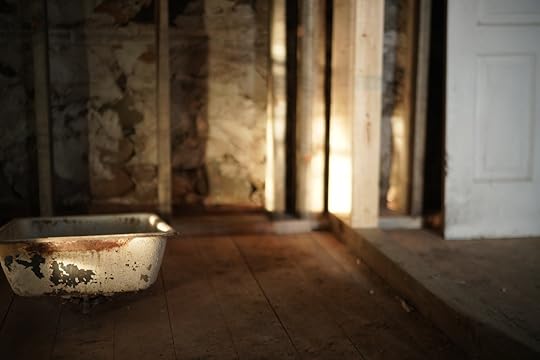

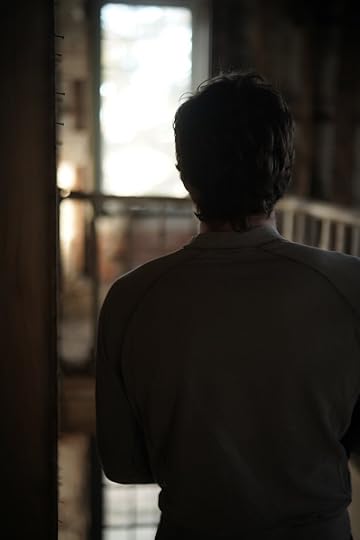


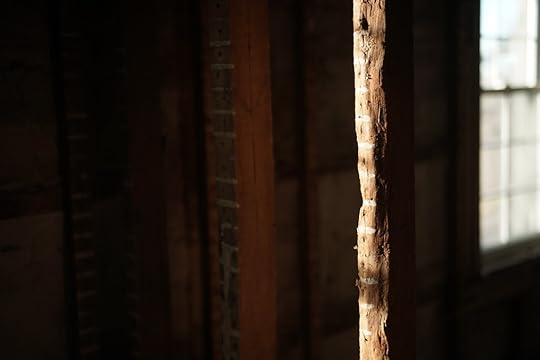
I want to go back and restore the broken parts of our family’s story…. go back and change some of my lines in the story with our children – say the right thing at the right time, not say the wrong thing at the worst time — so maybe there would be a different story, a better story, for each of them.
I want us to know our own kind of renovation and restoration and be re-storied. Because there are nights I lay in bed reflecting on the story of our family, that time and perspective and refining, now let me see how I didn’t get it right. Reflection is always part of the journey toward responsibility.
Like my own mama’s always said, one of the most formative truths she ever instilled in me: “It’s not that each of us aren’t going to get things wrong — it’s what each of us do with it afterward.”
Reflection leads to repentance. Reflection is key to repentance, which is key to relationship repair, which is key to relationship reconnection.
It’s true and direly needful in every relationship and work of restoration: Reflection leads to repentance.
Reflection is key to repentance, which is key to relationship repair, which is key to relationship reconnection.
We get to practice this like we practice our faith:
Only those who recognize what went wrong, and apologize for what they got wrong, have any hope of their dreams of right relationships realized.
I’ve been in the midst of my own interior restoration work, and ask another mother just last week, “What if I am getting this wrong even now?”
She smiles and whispers: “But it won’t only be one thing you get wrong; you’re getting all kinds of things wrong – we all are.”
Only those who recognize what went wrong, & apologize for what they got wrong, have any hope of their dreams of right relationships realized.
And I exhale and remember: It’s not like anyone gets most of parenting right, with only a risk of getting one thing wrong; parenting – like all of life – is about getting all kinds of things kind of right, and getting all kinds of things more than kind of wrong.
But that’s the good news of the gospel, that literally never stops being the best news: You get things wrong, you get so much wrong, but Jesus gives you all of His rightness, and more than enough grace to cover it all.
As I walk through the old dilapidated houses our sons are working exhausting long days to renovate and restore, I’m so moved by their optimism, their work ethic, their faith. And I catch my own reflection in the waving glass of one old window and I can feel all the nuance of it:
They say your children are a reflection of you.
And I turn toward one of our sons grown up, and I can see how, in some ways, it is true:
Sometimes you need the mirror of your child to see your own reflection and make changes to improve.
Their tempers get you on your knees about your temper; their self-centeredness moves you to reflect and repent of your own self-centeredness; their spiritual hunger or apathy convicts you of your own. Because children are, in some ways, a reflection of us — you can see how you’re called to pray more, confess more, repent more, trust more, stay hidden in Christ more.
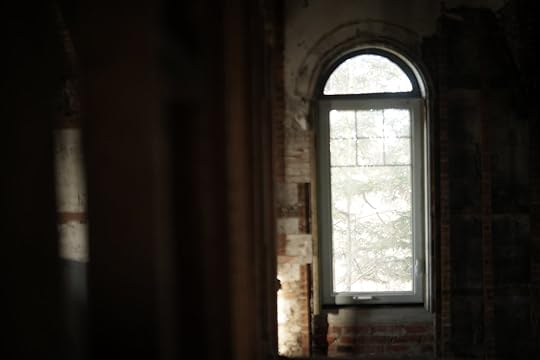

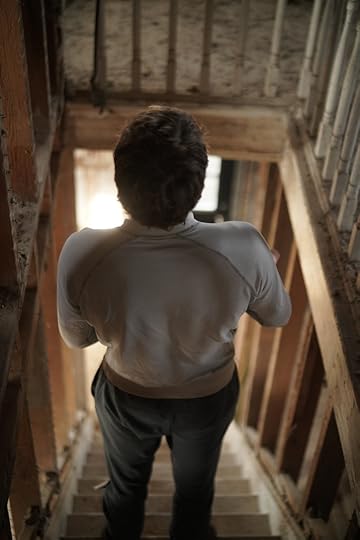

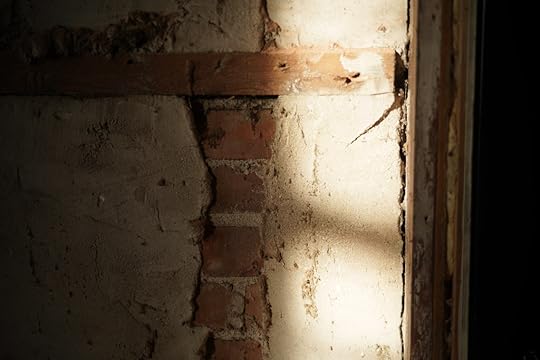
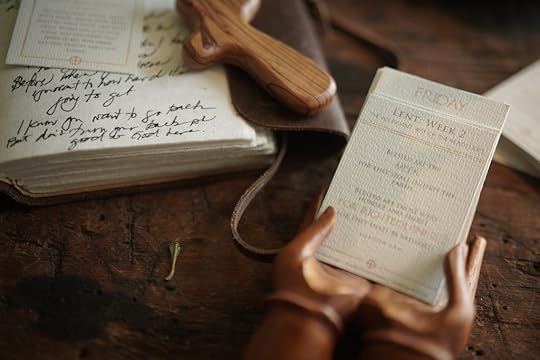
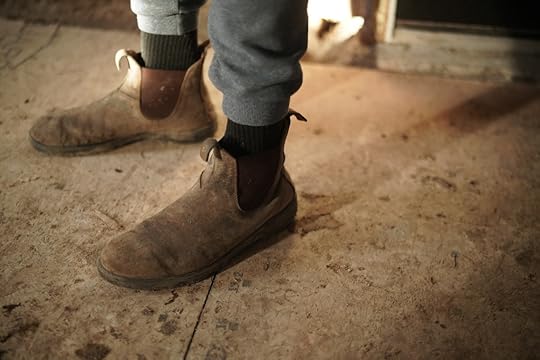

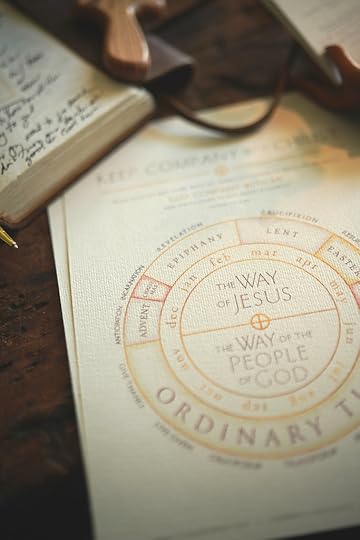
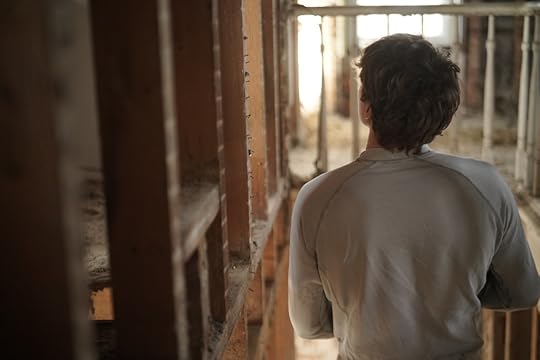
But that’s the good news of the gospel, that literally never stops being the best news: You get things wrong, you get so much wrong, but Jesus gives you all of His rightness, and more than enough grace to cover it all.
But in other critical ways, our children are not a reflection of us, but are distinctly their own people, with their own stories, and every parent needs to differentiate their stories from that of their children.
Unless you differentiate from your child, you can end up seeing your child as a reflection of your worth, their story an extension of your dreams, their lives as a script in your own story.
Unless you differentiate from your child, you can end up living the same old dysfunctional stories of the past that you are called to live free of.
All of our relationships, with anyone, including our children, are held between two anchors: attachment and autonomy.
Press toward the polarity of only attachment, and relationships can twist into dysfunctional enmeshment and co-dependency.
Press toward the polarity of only autonomy, and relationships can distance into dysfunctional isolation and self-focus.
Healthy relationships hold space for both healthy attachment, and healthy autonomy.
Unless you differentiate from your child, you can end up seeing your child as a reflection of your worth, their story an extension of your dreams, their lives as a script in your own story.
And differentiation is about this healthy holding on to both the attachment of connection, while holding on to the autonomy of a secure identity. Differentiation means we are distinct from each other, without being distant from each other. And growing in healthy differentiation moves the anchors of autonomy and attachment actually closer to each other, so they aren’t polarizing extremes of either/or, but rather you are closely connected to someone while also remaining closely connected to your own values and convictions and identity.
That’s always part of the restorative work of relationships: Let go of expectations, while holding on to close connection.
Kneeling down and beckoning me to come closer to see, one of our boys shows me how he’s been working at putting in new floor joists so the house can stand, so the old house doesn’t have to be torn down.
And I nod, undone with how he’s committed to restoration stories, how we all can be:
The good of your child’s story can no more go to your head, than the hard in their story can blame your heart.
Differentiation is how to be in close relationship with each other, without being constantly reactive to each other.
Because: Their story isn’t your story, nor is their story a fair or whole reflection of you or your story, and they have agency and autonomy in their story, just like you do in yours.
And like our children have to choose their own Savior, our children also get to choose their own story.
This is all that ultimately matters, this is what renovates all the broken places, this is what restores:
We don’t get to be a saviour to our children, we only get to be like our Saviour to our children.
I reach over and pat our son’s shoulder, tell him how moved I am by his tenacity, by his vision, by his perseverance.
The real work of a parent isn’t to take credit for your children, or take condemnation for your children, but to prayerfully keep taking your children to Christ no matter what.
I look Kai in the eye, and feel all this love for him, feel all this love for every single one of our miraculous children. And I know it: Our children owe us nothing more than the very honor and respect that we owe them. We may be part of giving them life, but in the end, all that we ultimately get is to give thanks for getting the joy of experiencing any life with them at all.
Kai tells me that he’s almost ready to work on the wiring and electricity of this century-old home that more than one carpenter said we should just tear down, but the better story to live is always one of restoration.
And I nod with a light bulb moment of my own.
Because this is the life-changing epiphany:
The good of your child’s story can no more go to your head, than the hard in their story can blame your heart.
The real work of a parent isn’t to take credit for your children, or take condemnation for your children, but to prayerfully keep taking your children to Christ no matter what.
The work of parenting is ultimately about needing to stay on your knees.
There on my knees, I smile grateful and tell our son that this is good work, this is all good and faithful work.
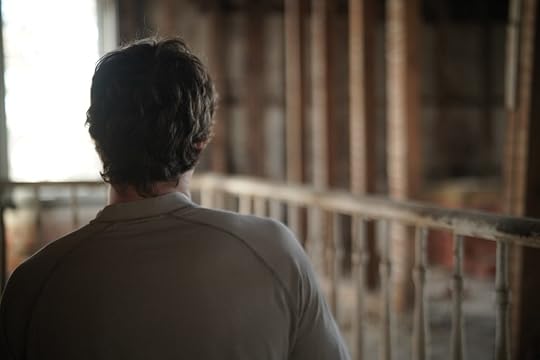
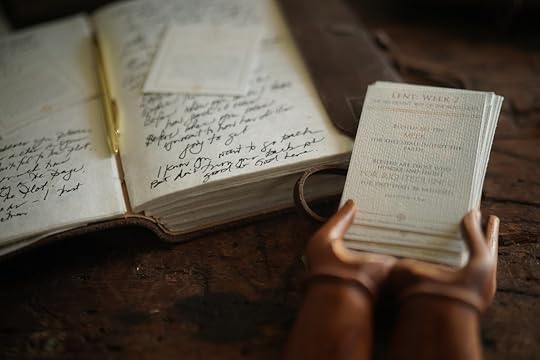


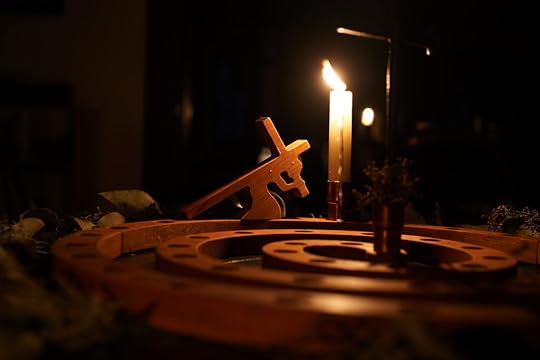 Favourite Resource: Lenten wreath with Cross-Carrying Christ
Favourite Resource: Lenten wreath with Cross-Carrying Christ
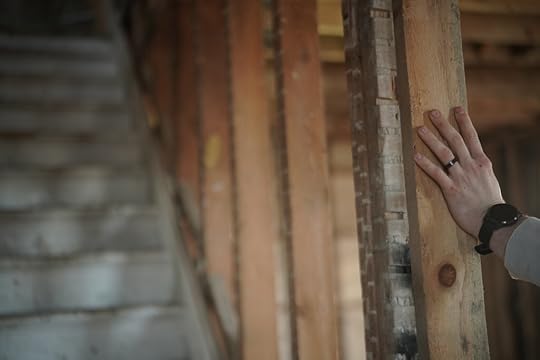

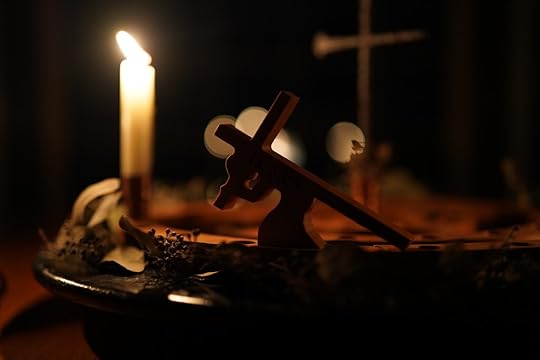 Favourite Resource: Lenten wreath with Cross-Carrying Christ
Favourite Resource: Lenten wreath with Cross-Carrying Christ
We don’t get to be a saviour for our children, we only get to be like our Saviour to our children.
That evening at home under our roof, I sit with our Lenten wreath, designed and made by our oldest son, and I don’t move the Lenten wreath’s candle back. I don’t go back.
But at the end of the second week of Lent, I gratefully move the Lenten wreath candle forward, I move the cross-carrying figure of Christ forward, and I lean forward and linger long in the flickering candlelight, linger long in the light of Christ.
The Word Himself is the Author of our stories, the only One who has all the authority to re-story and restore us, and the Word keeps writing our stories right into eternity, till the last word is a good Word.
Reflecting on Christ leads to being a reflection of Christ.
I sit there late with the candle, with the figure of Christ with the cross, with the open Word, till I lose track of time and feel the relief of it: There is still time, time for every family, time for every relationship, time to move forward in this way that restores all things:
Reflecting on Christ leads to being a reflection of Christ.
A Lent to Reflect:Can I Give You Your Free Reflective Lenten Journaling Calendar?
Can we give you a free tool to engage the spiritual practice of reflection this Lent with your free 40-day Lenten Journaling Calendar, with a reflective journaling prompts for each day of Lent, helping you to be soul restored and re-storied into the abundant way of the Beatitudes.
This Lent, lean into the spiritual practice of reflection because: Reflection is how you see the next best action.

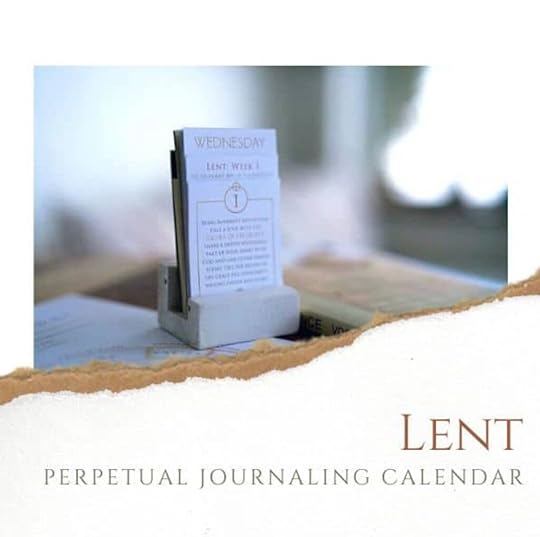
Simply come join our email family right here, and your farm girl here will gift you your free 40-day Reflective Lenten Journaling Calendar, tucked right into your inbox, along with the warmest welcome to our email family.
No matter where you’re coming from or where you’re going to: An honest reflection of the past is the way you see a holy redemption of the future.
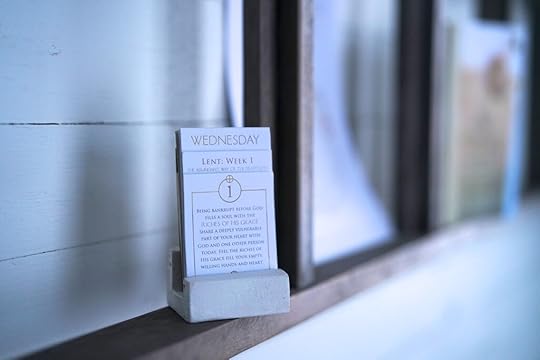
Without the spiritual practice of reflection, you can end up doing things you’ve always done, while expecting things to be different.
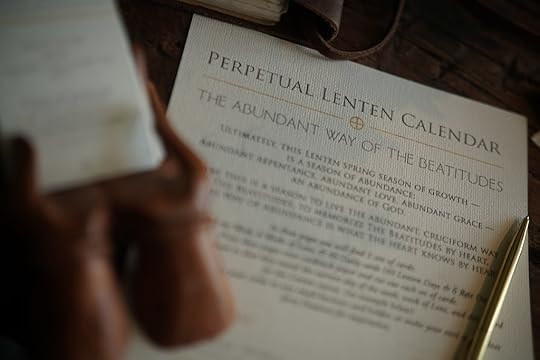
The spiritual practice of reflection lets you see not only the parts of the story that you’d do anything to change – but how God used some of the hardest parts of the story to change you.
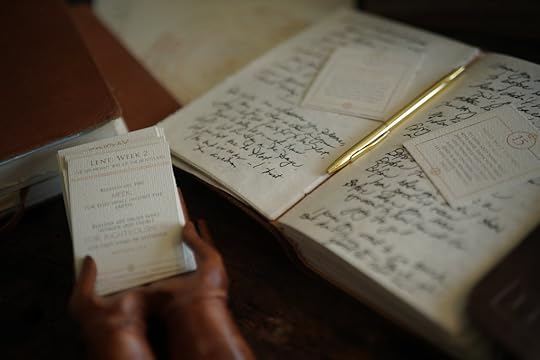
Start your free 40-day Reflective Lenten Journaling Calendar today and deepen your spiritual practice of reflection and daily journaling with a thoughtful, reflective journaling prompt every day of Lent.
Because: Reflecting on Christ leads to being a reflection of Christ.
Get your FREE 40 Day Reflective Lenten Journaling Calendar here Catch Up — & See What’s Upcoming — in this Series during Lent:A Lent to Reflect: Part 3: Even in the Face of Regrets: How to Practice Hope and Growth
A Lent to Reflect: Part 4: How to Practically Learn the Art of the Spiritual Practice of Reflection to Experience Soul Transformation
March 2, 2024
Only the Good Stuff: Multivitamins & Supplements For the Soul & Your Week Ahead [03.02.2024]
Happy, happy, happy weekend!
Serving up only the Good Stuff for you right here:
 Levi Voskamp – Photographer
Levi Voskamp – Photographer Levi Voskamp – Photographer
Levi Voskamp – Photographer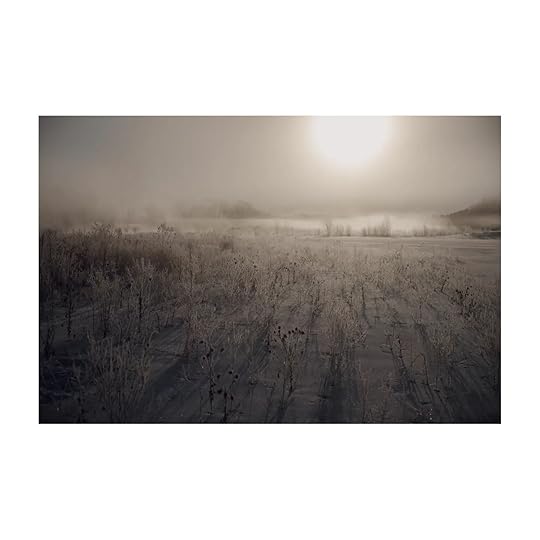 Levi Voskamp – Photographer
Levi Voskamp – PhotographerHave you entered the treasury of snow?
Or have you seen the treasury of hail?
View this post on InstagramA post shared by Soulseeds (@soulseedsforall)
Oh to be an old romantic…
So happy to see her!
Round up of What’s Happening around the FarmView this post on InstagramA post shared by Aurora McGee (@auroramcgeeart)
In which Aurora thinks about crows…
View this post on InstagramA post shared by Caleb Voskamp (@calebvoskamp)
And Caleb isn’t happy with seven different candles he made…
View this post on InstagramA post shared by Aurora McGee (@auroramcgeeart)
And Aurora drops her phone…
Check in next week to Keep following AlongThe Pull-Up ParadigmA Call to Count the CostOn January 20th, 2013 David Goggins, a former Navy Seal broke the world record for pull ups in a 24 hour period.
The previous mark was eclipsed by a margin as slim as nine pull-ups, with Goggins accomplishing an awe-inspiring total of 4,030 pull-ups in a mere seventeen hours.
The following is the first fifteen minutes of the record breaking 17 hours.
On a later podcast, talking about the successful record breaking attempt, Goggins broke down his mentality going into this gruelling feat.
Discipline is Part of Discipleship
“What separates me from a lot of people is they go into a daunting task, and the task is overwhelming.
Like when I heard the pull-up record was 4020 pull-ups, and I was talking about breaking this record, people are like, [it’s impossible], I went right to a pen and paper.
They’re like, “What are you doing?”
I’m doing the math, man.
“What are you talking about?”
I’m open minded to the fact that, okay, if I do five pull-ups in a minute for so many hours, I can get so many pull-ups in.
How much time do I have to rest?
I was breaking the math down.”
– David Goggins on the Joe Rogan Experience
In an era where the pursuit of instant gratification seems to eclipse the value of steadfast dedication, Goggins’ feat stands as a monument to the power of disciplined effort.
In a world that often preaches the gospel of “follow your heart,” Goggins’ narrative serves as a call to the virtues of discipline.
In a post-modern world that constantly emphasizes following you heart, it’s deeply refreshing to hear someone lay out a call to discipline, to embracing the cost and the pain of doing what is necessary – to emphasize that discipleship entails discipline, not just a call to a feeling.
In a secular culture often captivated by Five Minute Abs or One Easy Trick to XZY, the concept of discipline, especially in spiritually counting the cost, seems increasingly counter-cultural.
Unfortunately, this isn’t limited only to the secular; the western church often seems more enamoured with retreats, fog machines, and mountain top experiences, than it does in calling us to count the heavy cost of following Christ.
 Counting the Cost by James Smetham, 1855
Count the Cost
Counting the Cost by James Smetham, 1855
Count the Cost
Our Savior did not mince words when He spoke of what it took to follow Him. He spoke of a path marked not by ease and comfort but by sacrifice and self-denial.
Now great crowds accompanied him, and he turned and said to them, “If anyone comes to me and does not hate his own father and mother and wife and children and brothers and sisters, yes, and even his own life, he cannot be my disciple.
Luke 14:25-29
Whoever does not bear his own cross and come after me cannot be my disciple. For which of you, desiring to build a tower, does not first sit down and count the cost, whether he has enough to complete it? Otherwise, when he has laid a foundation and is not able to finish, all who see it begin to mock him.”
Luke records Christ’s radical words, emphasizing the necessity of bearing one’s cross and the sobering process of counting the cost of discipleship. It’s a process that demands a candid assessment of our willingness to forsake all for the sake of Christ.
This principle of disciplined commitment is not confined to the physical realm but extends to every facet of the spiritual. Goggins’ physical triumph is a temporal representation of this greater truth. His methodical approach—characterized by rigorous planning, relentless training, and an unwavering focus on the goal—mirrors the journey of spiritual growth.
Just as physical discipline can forge a body capable of feats that defy expectation, spiritual discipline shapes a soul that reflects the image of Christ more clearly with each passing day.
For a follower of Christ, some of the counting the cost will mean embracing the cost of the disciplines of prayer, the cost of spending time engaging with Scripture, and cost of service in the church. Counting the cost is the very means through which we grow into the fullness of our identity in Christ. They require a deliberate effort, a willing heart, and a spirit attuned to the transformative power of God’s grace.
In reflecting on Goggins’ extraordinary achievement, we are reminded that the path to glory set before us—is paved with the stones of discipline, sacrifice, and perseverance.
The call to follow Christ is both a love story, but also a call to discipline, to count the cost, and to embark on the journey of discipleship with our eyes fixed on the prize. It is a journey fraught with challenges but rich with the promise of transformation, a race not merely of a runners high but for those who, by God’s grace, endure to the end.
– written by Caleb Voskamp
Watching the baby
— Golden Retriever Lovers Club (@Retriever_Club_) February 19, 2024so sweet pic.twitter.com/oppCNa1eBP
Sometimes you just need the bestest of friends!
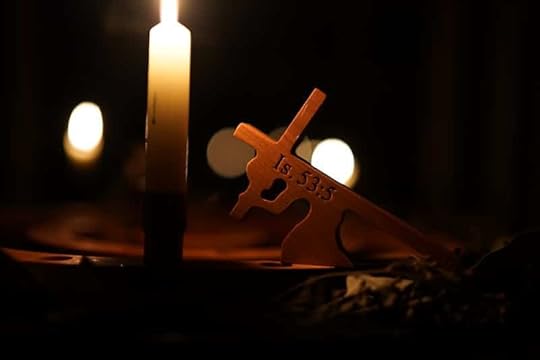 Cradle to Cross Wreath– Join us in keeping company with Christ counting down to Easter with this Lent calendar
Cradle to Cross Wreath– Join us in keeping company with Christ counting down to Easter with this Lent calendar

Five Minute Glass – Make each moment count; accompanied by a little tag saying: “Only one life, twill soon be past, Only what’s done for Christ will last.“
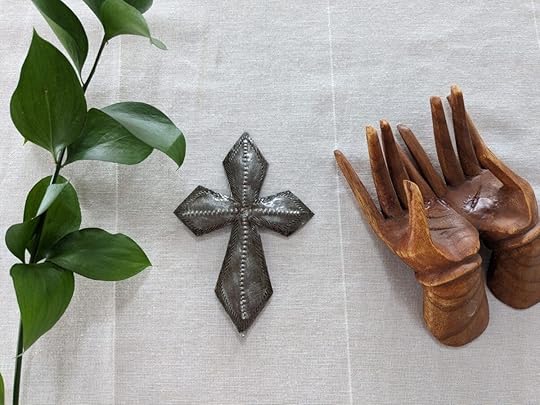
Hammered Tin Wall Cross – This embossed cross is highlighted against the smooth metal background, creating a striking contrast.
To pause and contemplate and celebrate
the wonder of Keeping Company with Him…
CLICK HERE: Whole Collection of Heirloom Pieces to Help you Keep Company with Jesus this Lent On The Book Stack at The Farm
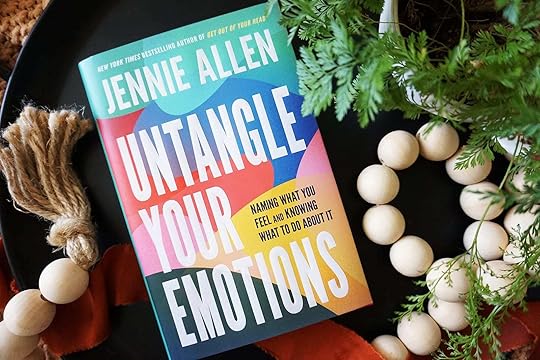
Read by Jennie Allen’s recent guest post:
What to do With Feelings That Are Meant to Be Felt, Not Fixed
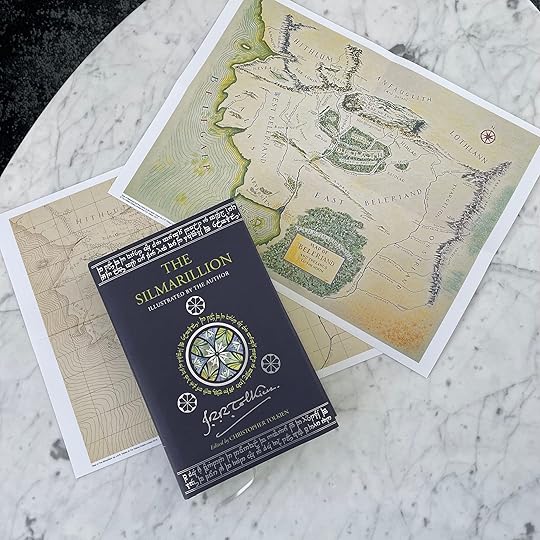
Aurora and Melba have both been reading The Silmarillion
and loving it!
[image error]For all the clean freak out there…
Are wasabi vapours the new fungus killer?
Oh glory! Would you come along with us?
The white limewash with the cedar shakes and timbers is
— Austin Tunnell (@AustinTunnell) February 28, 2024
The limewash leaves a natural finish on the brick versus oil based/latex paint which creates a continuous adhered surface (which can and will peel in time) as well as being breathable and anti-microbial due to its high… pic.twitter.com/n44EMni12X
A bit of a renovation nerd?
We love this creative construction experimentation in Oklahoma!
This one this weekend!
To reveal the kingdom coming
And to reconcile the lost
To redeem the whole creation
You did not despise the cross
For even in Your suffering
You saw to the other side
Knowing this was our salvation
Jesus for our sake You died
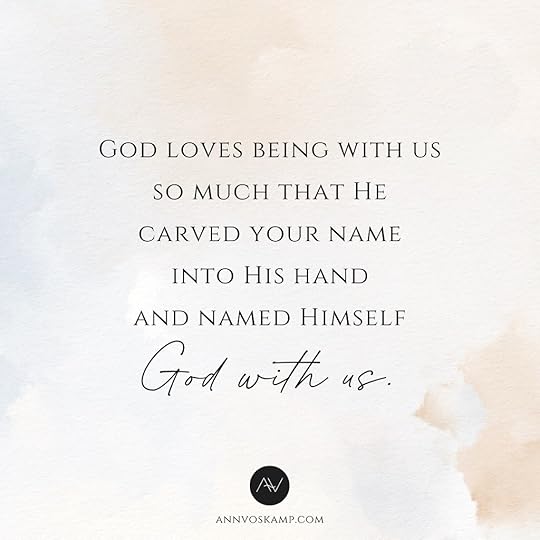
[from our Facebook community – join us?]
It’s not about you making time for God
because He’s already made Time for you,
and is just waiting for you to come be with Him.
He loves being with us so much that He carved your name
into His hand and named Himself
“God with us.”
His commitment to you is more than written in stone–
He wrote it into Himself.
Spend time with Him.
He spent everything for you.
That’s all for this weekend, friends.
Go slow. Be God-struck. Grant grace. Live Truth.
Give Thanks. Love well. Re – joy, re- joy, ‘re- joys’ again
Share Whatever Is Good.
February 29, 2024
What to do With Feelings That Are Meant to Be Felt, Not Fixed
Her and I are deep — she’s one of my daily go-to people; Jennie Allen and I know what’s going on in the most tender and hard places of each other’s lives. Over the last 13 years of doing life together, we’ve walked through a lot of joy and a lot of hard together. We’ve cried a lot of tears together. We’ve experienced the highs and lows of life and all the messy and wonderful emotions that come with living in this beautiful, and yet broken, world.
One of my dearest friends on the planet, who’s the realest deal & I couldn’t love more, Jennie Allen is a Bible teacher, author, and the founder and visionary of IF:Gathering. She lives with a contagious passion to help others love God more every day, see Him for who He is through His Word, and live with the understanding that He’s ready to receive you at any moment, and you don’t have to have it all together to come to Him. It is a grace to welcome my sister, Jennie, to the farm’s table today…
Guest Post by Jennie Allen
When our oldest son, Conner, was two years old, soon after his baby sister arrived, I decided we needed an outing.
So, we loaded up the car and went to the mall with my mom and sister. Somehow in the giant Dallas mall, Conner disappeared.
He was wearing a bright-orange shirt and had striking sun-bleached blond hair, yet he just vanished from everyone’s sight. An hour passed, and I had to make the most difficult call of my life to tell my husband that our son could not be found.
No one wants to make that call.
No one wants to get that call.
The store had been shut down and locked, and every clerk was looking for him. The police were called. A solid hour after he had been lost, one of the staff in Banana Republic heard a little movement.
They pushed back the clothing and found Conner hiding between a wall and a rack of pants. By the time I found our son, he was crying.
I’ve never been happier to see anyone in my life.

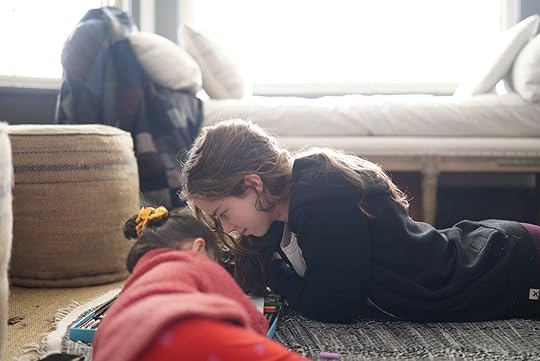
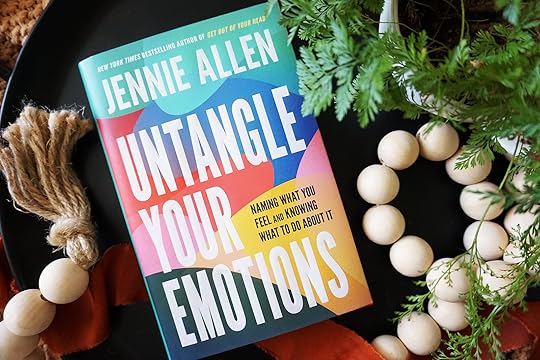


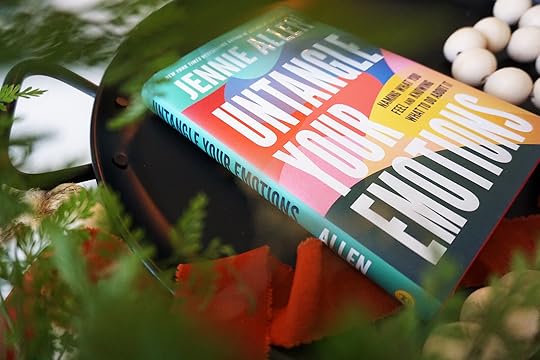

He was crying because that entire time he heard us looking for him and screaming his name, all he could think was that he was going to get in trouble.
So he didn’t speak. He sat there terrified, hiding behind the pants in Banana Republic.
“Please hear me: You don’t have to tell everyone; you have to tell someone.“
Maybe you are well versed in hiding behind the pants. You’d rather sit there quietly with all your emotions and feelings tucked inside than risk them coming out if you face the gravity and reality that awaits you. So you stay glued to the wall.
And yet it does not change the fact that circumstances are waiting for you that must be confronted and that will not go away just because you hide behind the pants. In fact, the more time that goes by, the more desperate, chaotic, and needy your realities become.
Please hear me: You don’t have to tell everyone; you have to tell someone.
I know the damage that can flow out of a reaction to our emotions; I know the beauty they can catalyze too.
Emotions are tools. Which means that whenever we feel an emotion, we can use that feeling to spur us on toward God, or we can use it to sit there and sin.
“Emotions are tools. Which means that whenever we feel an emotion, we can use that feeling to spur us on toward God, or we can use it to sit there and sin.“
Here’s what we can’t do if we want to live healthy and free: We can’t stuff the thing and just move on.
I think of my son who gets in the car after the turbulence of middle school. Some days he explodes and tells me every hard thing about his day and we go to McDonald’s and get a shake and cheeseburger and by four o’clock he is laughing. And on some days, he holds it in, maybe because of shame or just sheer exhaustion, and by dinner he is exploding on one of us.
It’s exhausting how much energy we burn trying to keep our box of emotions hidden and neatly out of view.
And even with all that effort, stuffed emotions inevitably find their way out, oftentimes sideways on the people we love. Boxes stuffed with feelings can’t stay closed forever.
I’ll say it again: You don’t have to tell everyone; you have to tell someone.
How are you really? The skilled concealers love the word “fine”. It is the greatest rug to lay out over all the unsightly places in our lives. “Fine” is short and grammatically correct and leads to very few additional questions.
But it also doesn’t do a single thing to help sort out that tangle of emotions you’ve stuffed into a box in the corner of your heart.

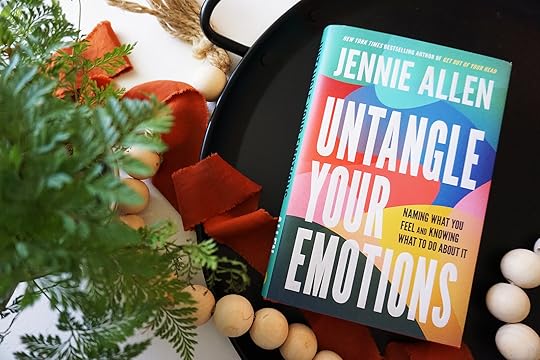


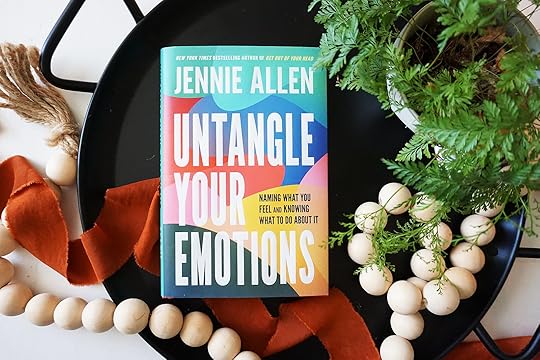
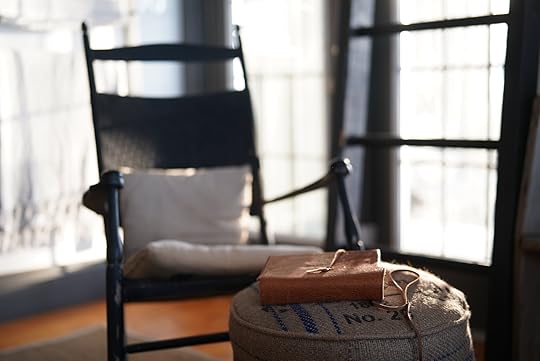
“As he started to heal, he began to bring healing to others. This is how it goes.“
As an example of how the strategy of concealing our emotions can affect your soul and your body—all of you—my son-in-law Charlie, graciously gave me permission to tell you about his going to therapy for the first time in his entire life.
Charlie is a guy who has always been fine. He’s super easygoing, not easily revved up by circumstances, the kind of person who takes things as they come and whose internal motor runs smoothly almost seven days a week.
But some stuff has been coming up for Charlie recently, stuff that he thought he should address. The collective suggestion from his friends and family sounded something like, “We’re going to pray for you. Have you talked to a doctor about how you’re feeling? What about therapy? Have you ever been to therapy?”
He got the message.
So, Charlie went to therapy for his first time. And when he got home, he proceeded to take a five-hour nap. In the middle of the afternoon. When he later told the rest of us what had happened, we all laughed together with him. Because we had all been there before too.
“… there is a better way to respond to emotions: fully embracing the purpose they were made for—connection.“
And then guess what Charlie did? He made another appointment with that therapist. After that next meeting, he called and booked him again. And again. And again. And again.
Once he got on his feet emotionally, he started telling his friends about how much better and clearer he felt. He started having deeper, more substantive conversations with those guys, listening to them more intently and kindly than many of them had ever experienced in their lives. As he started to heal, he began to bring healing to others. This is how it goes.
It’s hard to unlearn the patterns that have been ingrained in us.
But if we choose the easiest paths every time, if we check out through controlling and coping and concealing, we miss the best parts of life. The parts we are actually craving.
Because there is a better way to respond to emotions: fully embracing the purpose they were made for—connection.
Connection to God and connection to others.
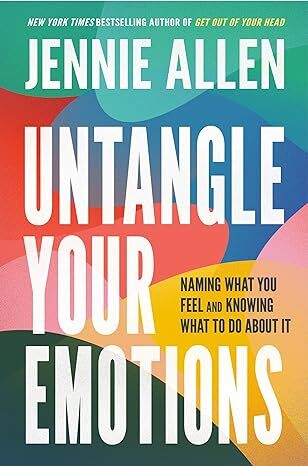
Jennie Allen is the founder and visionary of IF:Gathering as well as the New York Times bestselling author of Find Your People, Get Out of Your Head, Made for This, Anything, and Nothing to Prove.
A frequent speaker at national events and conferences, Jennie is a passionate leader, following God’s call on her life to catalyze a generation to live what they believe. Jennie earned a Master of Biblical Studies from Dallas Theological Seminary and she and her husband, Zac, have four children.
In her new book, Untangle Your Emotions, Jennie invites us to stop ignoring, suppressing or dismissing our feelings and instead notice them, name them, and let God use them to draw us closer to Himself and others.
Run! This is a book that everyone needs, and all your people need : Untangle Your Emotions.
{ Our humble thanks to WaterBrook for their partnership in today’s devotional.}
February 28, 2024
How to Really Have the Right Life Map To Get Where You Really Want to Go
I mean, maybe it shouldn’t come as a surprise?
“You have to know where your feet are actually at, to decide what map you actually have to get into your hands. Wrong Map? Wrong way.”
But if you’re holding a detailed, accurate map for Taipei? But your feet are planted on a good ole street in Tennessee? It shouldn’t come as a surprise that you can’t find your way to Tootsie’s Orchid Lounge across from the old historic Ryman in Nashville.
If you aren’t holding the right map for where your feet actually are, you can’t ever get to where you actually want to go.
I can’t remember when exactly it happened, but this one phrase has lodged on endless repeat in my head and has radically reoriented my heart and feet and the direction of my life:
This is our Father’s world.





This is our Father’s world.
This isn’t an aimless rock floating haphazardly through the universe, and we don’t get to make up whatever laws or logic that we like.
Regardless of whatever any headline keeps blasting, whatever the sound-waves keep screeching, whatever all the social streams about drown us all in: this is not our world.
This is not the world of those with the big microphones or glaring cameras, this is not the world of the supposed big wigs or power-brokers or game changers, this is not the world of the stock markets or the suits or the smooth-talkers, this is not our world.
We don’t get to make up the way this world works, because we aren’t living in a world we made — we are living in the WayMaker’s world.
We don’t get to make up the way this world works, because we aren’t living in a world we made — we are living in the WayMaker’s world.
For all our thinking that this is our planet, the reality is: Not one person on planet earth has ever breathed life into lung, or sculpted dust into soul, or birthed a blanket of dancing stars out of absolutely nothing.
This is our Father’s world.
Don’t gloss over this: For your blood-clotting function to perform, neither of its key ingredients, vitamin K and antihemophilic factor, can be missing. Which means, your blood-clotting function is an irreducibly complex system — which causes, as writes, biochemist, Michael Behe, a significant “problem for Darwinian evolution.”
Listen to this: There wouldn’t even be one person on this whole spinning marble in space if there was even the slightest difference in how atomic nuclei bind together, as biophysicist Alister McGrath writes, “This force, which has a value of 0.007…if it “were 0.006 or 0.008, human beings could not exist.”
Everyone travelling through this word has got to know: This is our Father’s World.
Be mindblown by the reality: Change the force binding protons to neutrons by even five percent — and there wouldn’t be a human being on the planet.
Pay attention and be awed: The cosmological constant must be fine-tuned to one part in 101 to the 20th, in order for any life to actually exist on this pale blue dot in space.




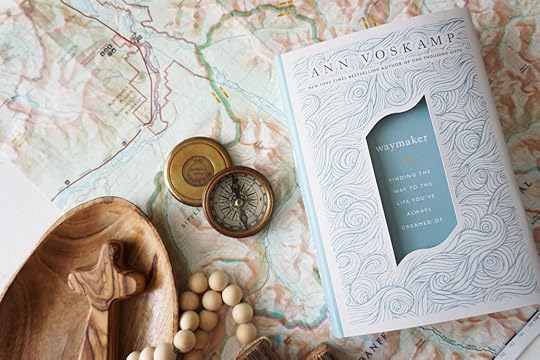



How does anyone muster up enough blind faith to believe all this is accident?
Is our existence really some cosmic jackpot coincidence?
Honest question: How does anyone muster up enough blind faith to believe all this is accident?
You tell me: Is this all really a wildly lucky accident of physics, that water just happens to exist as a liquid, that chains of carbon atoms just happen to form complex organic molecules, that hydrogen atoms just luckily form breakable bridges between molecules?
Read this twice: Over thirty different cosmic parameters must be precisely set, like dials on a dashboard, to create a world like this, for life like this to exist.
Is our existence really some cosmic jackpot coincidence?
As Freeman Dyson, a mathematical physicist world renowned for his research in quantum field theory and nuclear physics, once remarked, “the more I examine the universe and study the details of its architecture, the more evidence I find that the universe in some sense must have known that we were coming.”
No one is going around making up the idea of God — God is the one who had the idea of us and literally made us. And because this universe is fine-tuned for life — the only way to fully live in this universe is to be fully attuned to God.
Look out your window right, look in the mirror, and see actual reality: The universe only looks like it was prepared for humanity’s coming, because there is One who created the universe precisely so humanity could come — and He Himself came for all of humanity.
There is no way to get around it: This is a planned planet.
This is our Father’s world.
Meaning: No one is going around making up the idea of God — God is the one who had the idea of us and literally made us.
And because this universe is fine-tuned for life — the only way to fully live in this universe is to be fully attuned to God. (And if the universe seems just fit for life — doesn’t that actually mean that God just fits into all the emptiness in our lives?)
It’s only when you know that you are breathing in the rarefied air of God, that you can reach for only map that makes sense of any of this old world, that this is all the sod of God.








I think of it often these days: During World War II, my grandfather was a messenger who was given maps and coded messages and maps from superiors to memorize and then deliver.
Night after night, he ran a dirt bike across unfamiliar terrain, just following the map in his head that he’d memorized, to deliver the encoded message, desperately trying to avoid interception from the enemy, carrying message and map only in head, so that if the enemy captured him, they’d find nothing in his hands.
One night, in the thick black dark, my grandfather, laying low on his army dirt bike that he ran without any lights so as to avoid detection, kept turning around and around, looking for a distinguished knoll that he had memorized from the topographical map, which would be his clear sign that he was supposed to turn and head north.
Epiphany for life: If things keep going wrong, maybe the map in hand might actually be wrong? If the map in your head doesn’t match what you see under your feet, then you’re working with the wrong map.
But in spite of backtracking and retracing his track, back and forth, spending precious hours looking for the knoll, he couldn’t find it, no way, no how.
My grandfather cut the engine.
Then he stood there with his dirt bike in the quieting dark, mentally analyzing the map he had in his head. And then he realized it like a flash of light in the dark:
If the map in your head doesn’t match what you see under your feet, then you’re working with the wrong map.
Epiphany for life.
If things keep going wrong, maybe the map in hand might actually be wrong?
If you aren’t where you want to be — what are the ways your map might not reflect the way of the earth under your feet?
When the map in our heads doesn’t agree with the earth under our feet, there is a way — a sacred way — to have God’s right map in the heart, which always, always, always leads to the right way through.
Because this is our Father’s world.
It’s only when we know that this is the WayMaker’s world, can we ever expect to finally discover the way we dreamed through the world.
And it’s not too late, it’s never too late, to pick up a new map ….. and discover more than a better way through to where you want to go — but actually a better way to be.… a way to become more of who you were always fully made to gloriously be.
w a y m a k e r This one is for all of us who want a real way through…
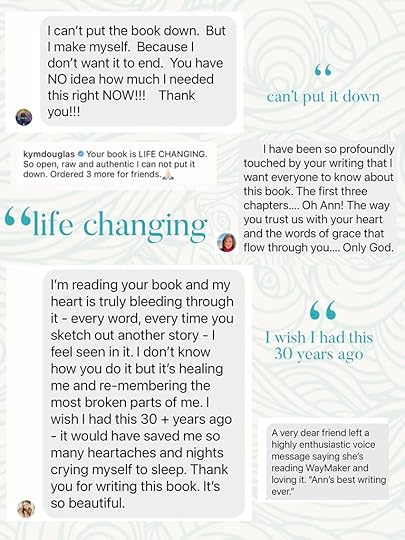
For every person who has faced a no-way sign on the way to their dreams, WayMaker is your sign, that there is hope, that there are miracles, and that everything you are trying to find a way to, is actually coming to meet you in ways far more fulfilling than you ever imagined.
Gr
ab Your Copy of WayMaker — and begin the journey you’ve secretly been hoping for.
February 26, 2024
How Do You & Your People Process Feelings Around Loss & Feeling Brokenhearted?
Both students together at Wheaton, & a beloved friend whom I highly esteem, I’ve seen how Aubrey Sampson, a truly incredible writer and thinker, is passionate about walking with those who are hurting, especially those who wonder where God is in their pain, not as an expert but as a guide and fellow-traveler. Her first children’s book, which is AMAZING, Big Feelings Days: A Book about Hard Things, Heavy Emotions, and Jesus’ Love was written as a gift for a family in her church. What Aubrey didn’t know is how God would go before her, giving her words that she would need herself, as she faced an unexpected loss of her own. It’s an absolute joy to welcome Aubrey to the farm’s table today…
Guest Post by Aubrey Sampson
I pick up the phone on the first ring, knowing that the mama who is calling me is in deep agony.
Just a few months earlier, my husband and I—her and her family’s pastors—led and lamented with her family through an unexpected ceremony—a funeral for their stillborn baby girl.
If you have known this kind of formidable loss yourself, you know that it is both a goodbye to a precious gift and a goodbye to a precious dream. Child loss is layered, ongoing, and frankly, excruciatingly brutal.
The question this mama is calling about is—in true motherly fashion—not for her own sake but for the sake of her three other young children. They are experiencing so much sadness and confusion over the death of their baby sister, and this mama is looking for some handholds for them.
“Death is a comma, not a period…”
“Do you know of any grief resources?” she asks. “For them? For my little ones?”
“I can find books and podcasts out there for me and my husband,” she continues, “but I am struggling to find something for my kids, something age-appropriate and Jesus-focused.”
“Let me look around and get back to you,” I say.
I search online and at all the usual bookstore places, and there are, of course, some beautiful treasures in this grief space. But I cannot find many books for little ones who are holding big feelings of loss and anger, at least not ones that also explain what Jesus does with our big feelings.
I call my publisher and leave a message, “Hey, I am looking for something in this category. Got any recommendations?”
She calls me back almost immediately and says, “We think you need to write it.”

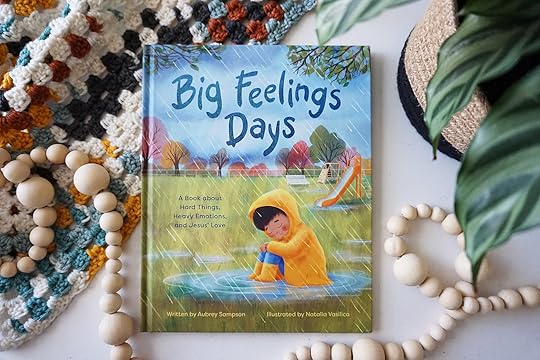
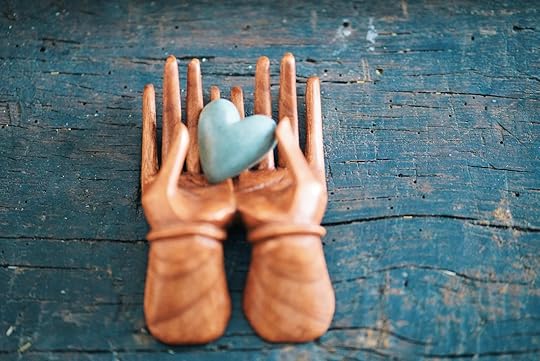
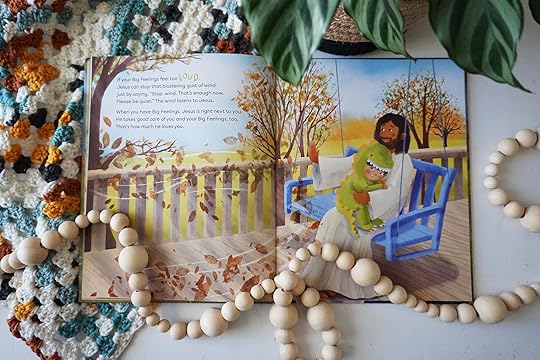

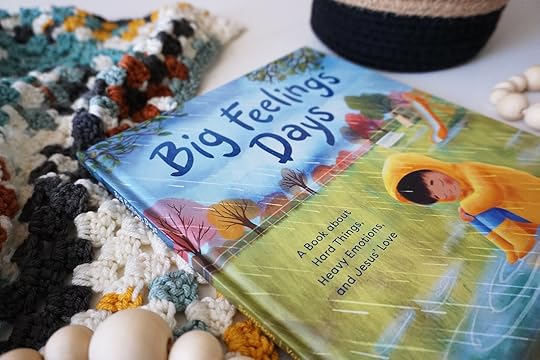
I’ve been writing, speaking, and podcasting about lament, grief, and big feelings for the past several years. So her idea makes sense.
“My faith tells me that God is always, always, always coming toward us with love, even in hardship—maybe especially in hardship.”
My faith tells me that God is always, always, always coming toward us with love, even in hardship—maybe especially in hardship.
The Christian faith is never shy about mentioning that pain and suffering are part of the package. But what I didn’t know, couldn’t know, is that as I began writing for this precious family in my church, my best friend—my ride-or-die of over 25 years—would be diagnosed with aggressive breast cancer and go home to Jesus just two years later.
What I didn’t know is that as I was writing, I would be learning to say goodbye.
Jenn, my best friend, was on hospice for just under a week before she passed, and the two of us spent many hours together on her hospice bed, crying, laughing, remembering, trading final sacred secrets. We don’t always get the privilege of saying goodbye to those we love, so I am unbelievably grateful for this strange gift.
One night, Jenn asked me a vulnerable question. Several tender questions, actually.
“Aubrey, what will it be like?”
Will my son (a child she lost after 36 hours of life) know me? Will I know him?
Will my relationship with my family members, those who I haven’t talked to in years, be okay?
Will going be peaceful, not scary?
I said yes to everything.
Yes, he’ll know you. Yes, it will be okay with your family. Yes, it will be peaceful.
It’s not like I know these answers; ironically, Jenn knows them now. But what I do know is that in death, as in life, Jesus is faithful. Death is a comma, not a period, and my friend is on the other side of the veil—healthy, whole, and held and cheering the rest of us on.
And while I grieve with hope, I also grieve heartily, heavily. Grief is a solid meal, not a snack; it’s too much to swallow, too intense to take in.
“Grief is a solid meal, not a snack; it’s too much to swallow, too intense to take in.“
I have known loss before, but what has surprised me most this past year are all the feelings—not only of sadness but also of fear, anger, doubt, disequilibrium, exhaustion, fogginess, fatigue, sleeplessness, nausea.
There is often a little child part in us who needs to know how deeply loved, held, and accepted we are—especially when our emotions feel messy, like they are spilling everywhere.
Something I have begun to whisper regularly to myself this year, something you might need to hear, dear reader, if you are in the thick of pain and suffering yourself, is actually something I wrote for that precious family in our church:
“God made you, and God made your Big Feelings, too. Jesus loves you soooo much, and Jesus loves your Big Feelings.”


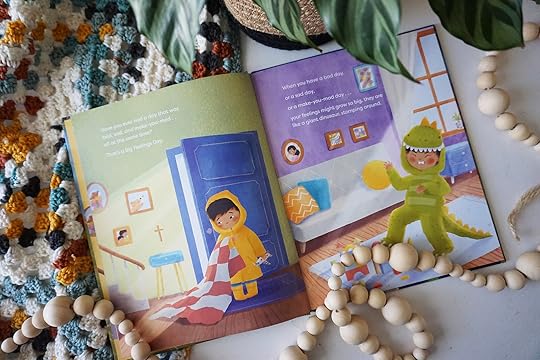

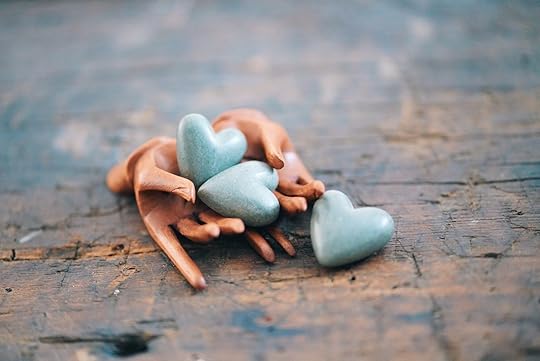
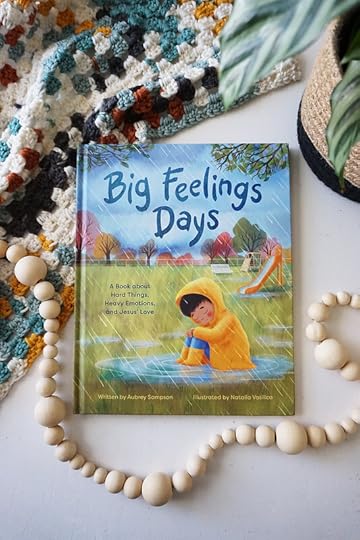

The gift of Jesus—for that little hurting child inside of you or for that little hurting child you care for—is this: because Jesus took on flesh, because he came into the world as a limited baby with unlimited power, he knows, welcomes, accepts, and loves our big feelings.
Jesus holds and heals all our big feelings.
In Psalm 34:18, Scripture makes a promise, a promise for now: “If your heart is broken, you’ll find God right there” (MSG). Revelation 21:3-5 makes yet another promise, a promise for the future. It says, “Look! Look! God has moved into the neighborhood, making his home with men and women! They’re his people, he’s their God. He’ll wipe every tear from their eyes. Death is gone for good—tears gone, crying gone, pain gone. . . . Look! I’m making everything new” (MSG).
“Heartache is a comma, grief is a semicolon, death is a dash—all because of Jesus’ own death and resurrection.“
These Scriptures, providing promises of hope now and hope one day, remind us that we are never alone in our heartache. Why? Because God is near. God is among the afflicted. And? Our heartache will never be the final period or exclamation mark on our story.
Heartache is a comma, grief is a semicolon, death is a dash—all because of Jesus’ own death and resurrection.
In Him, we can cling to the hope that one day, all things—even the most awful things like loss and sadness and unjust deaths—will be repaired. They will be sewed up and mended by the hands of God himself.
If you are carrying grief the weight of gravity, if you are swallowing more than you can stand, if you feel alone and unsure of how to lead others through it, take heart.
God is always, always coming toward you with love. Jesus loves you and your big feelings, too.
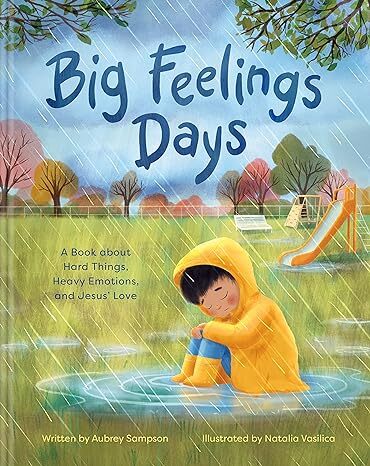
Aubrey Sampson (MA, evangelism and leadership) is an author of several books, a church planter, co-host of the Nothing Is Wasted Podcast , and a speaker. She met Ann during grad school, where they worked their little brains off, and Aubrey and Ann appreciates each other’s valiant, open heart toward God and others. Connect with Aubrey on Instagram @aubsamp or find out more at aubreysampson.com.
Aubrey wrote
Big Feelings Days
because children—and their grown-ups—have a lot of emotions, and feeling sad or angry or brokenhearted can be overwhelming. That’s why it’s important to help kids understand that their feelings are valuable and normal―and that they can creatively express what they feel to Jesus, who created emotions and deeply cares about each one.
Big Feelings Days
is a tender and engaging picture book that helps children ages 3–7 learn how to release their feelings of grief, anger, and heartbreak in creative ways to a God who cares. This picture book includes
Even now you can be helping your kids or the kids you love develop emotional health and emotional intelligence as they learn to come to Jesus with whatever they may be feeling.
This is a book every family needs on their shelves! Grab your copy here today.
{Our humble thanks to NavPress for thier partnership in today’s devotional.}
Ann Voskamp's Blog
- Ann Voskamp's profile
- 1368 followers





